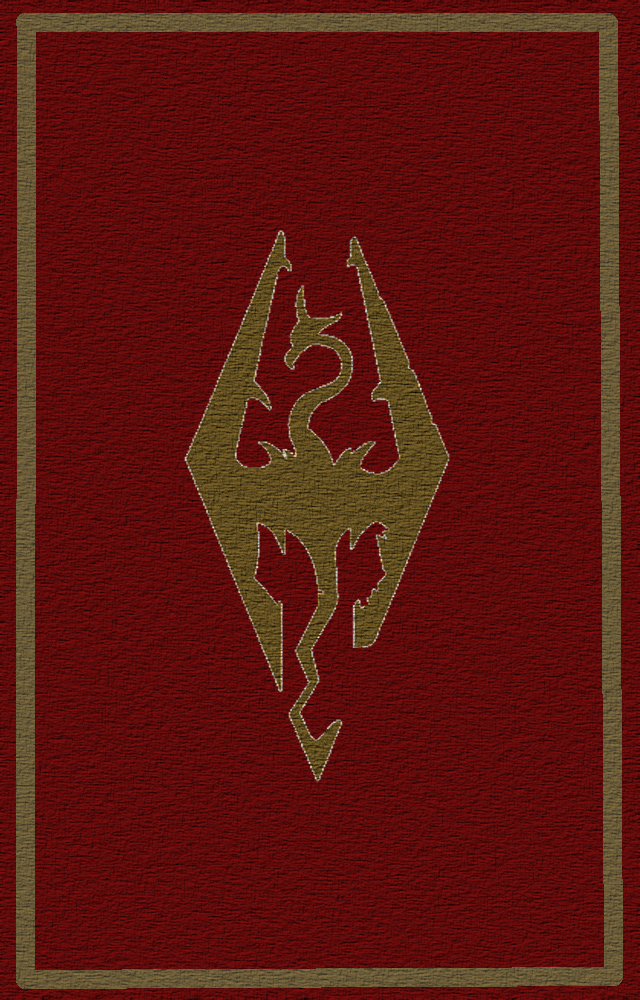
Preface
In 1994, a small video game company known as Bethesda Softworks released a game known as Elder Scrolls: Arena. Though unpopular at first, it soon grew, and the series it started has changed the way people look at video games in profound ways. This pen and paper game was inspired by that game and its fellows, and attempts to bring all the wonderful and unique things the Elder Scrolls has created, hopefully allowing adventurers of all stripes to defeat mountain demons, steal peoples sweetrolls, read saucy books about argonian maids, and tramp off and make deals with daedric princes of questionable virtue.
~ Creator
Sections of Interest
GM tip
A Box like this shows a Tip to GMs. This tip could reference a certain point of interest that a GM should pay attention to, or a example of gameplay to help a GM understand a certain rule.
Gritty Game Mechanics
A box like this shows a game mechanic to watch out for and that requires a bit of calculation in order to get right.
The creator of this book is not affiliated with Bethesda in any way and does not own the names of any person, place, skill, attribute, weapon or creature named forthwith. This creation is legal under the Fair Use law. Now, if I have all my legal basis covered, we can begin!
Introduction
So, you have in your hands (or on your monitor) a RPG rule book. Now, what is a RPG game? A RPG game such as this one has much in common with children games of make-believe, and, by definition, these games are powered by Imagination. Unlike this games of make-believe, RPG games use a set of rules to create a structure for the story being created, allowing fair and fun play for all involved.
The basic model for most RPG games (including this one) is this: One person, known as either a Dungeon Master or Game Master, describes a certain scenario. The players, each of which are in control of one or more characters, describe what they wish to do in that scenario, and the DM describes the result.
Using This Book
This book is divided into three sections:
Part I Involves creating your character, and includes skills, races, birthsigns, and magic.
Part II Talks about the rules of the game, such as combat, traveling, and rolling skills.
Part III Holds items for the GMs, including Monsters, NPC's and hints on how to creat the most enjoyable game for your players.
Basic Rules
The Dice Pool
This game uses a dice system known as the Dice Pool system. In the dice pool system, players must roll a number of six-sided dice, known from now on either as d6s or simply dice, and attempt to succeed in a certain number of rolls determined by the GM. A roll is considered successful if the dice lands on at least a 4. A 6 counts as two successes, while a 1 counts as two failures.
Each character, monster, and NPC has different abilities in certain branches of physical or mental abilities, called Attributes. There are eight Attributes for the Elder Scrolls RPG: Strength, Intelligence, Willpower, Agility, Speed, Endurance, Personality, and Luck. The number of dice you can use for a certain roll depends on your score in the Attribute needed. For information on when a check for a certain attribute should be called, refer to Part III of this book.
Advantage and Disadvantage
Certain rules in the game stat that a roll may have advantage or disadvantage. For example, all characters have disadvantage when using a item that they have not trained in, while a
Environmental Factors
One benefit the dice pool system has over other systems is that it allows the GM a special way to increase or decrease the difficulty of a roll. Depending on different external factors, such as a strong wind or cloudy sky, the GM may allow the player to add dice to their roll, or they might force the players to remove dice from their roll.
An example would be if Lucy, playing as Ahkari, wishes to shoot her bow at a distant target during a rainstorm. After considering the factors, the GM decides that, due to the rain and wind, Lucy must use one less die for her attack roll.
Example of Gameplay
Game Master (GM): After you all cross the pass between the two towering mountains, the road suddenly starts to dip down into a deep valley. As you reach the bottom, you see what appears to be a old, ruined fort at the far side of the valley. The snow starts to fall down thicker, and you see a dim yellow light peek out of the forts windows.
Lucy (Playing Ahkari): There are lights on? I want to see if their are any silhouettes at the window.
Peter (Playing Grimvar): And what about the defenses? does it look like the fortress is in good repair?
GM: Ok, we'll start with Lucy. Can you make a Agility roll? And, Khajiit have Night Eye, right? you may add another dice to that roll.
Lucy (Rolling 4d6s): Ok then... I got 3 successes
GM: Alright. It's hard to see at this distance, but it does look like something passes in front of the light source a couple of times. Now, Peter, you wanted to check the defenses of the fort? Also make a Agility roll, and use one less die due to the darkness.
Peter (Rolling a d6): Ugh! all failures!
GM: It's too dark for you too see anything at this distance. Now, would you like to move closer?
Rounding
Unless a rule says otherwise, always round down when dividing a number.


Attributes
There are seven Attributes for the Elder Scrolls RPG. The number ranges from 1 to 100, and every increment of 10 levels adds the amount of dice you can use when making a roll with that skill, such as using Strength to push or lift an object, or Willpower to see if you can resist outside magical forces and influence the magical realm. You can use 1d6 when your skill equals 10 or higher, 2d6 when it is 20 or higher, and so on.
Strength
Affects how much you can carry, and your maximum stamina amount. Governs the skills of Long Blade, Blunt Weapon, Axe, and Smithing.
Intelligence
Affects your total Magicka. Governs the skills Conjuration, Alchemy, and Security.
Willpower
Affects how quickly you regain Magicka. Governs the skills of of Destruction, Alteration, Mysticism, and Restoration.
Agility
Affects your ability to move and balance, as well as how quickly you regain Stamina. Governs the skills of Block, Sneak, Light Armor, and Marksman.
Speed
Affects your total speed. Governs the skills Athletics, Acrobatics, Unarmored, Short Blade, and Hand-to-Hand.
Endurance
Affects your Maximum Health, as well as how quickly you regain Health. Governs the skills of Medium Armor, Heavy Armor, and Spears.
Personality
Affects your ability to negotiate, intimidate, and persuade others. Governs the skills of Speechcraft, Enchanting, Illusion, and Mercantile.
Luck
Luck is a special attribute. It governs no skills, and usually one will not roll using this attribute. Instead, at the start of each session you gain a number of luck points equal to how many luck dice you have. Whenever you roll a failure on any dice, you may spend a luck point to reroll that dice, potentially turning a failure to a success.
Health, Magicka, and Fatigue
your total amount of HEALTH equals your Endurance level. You regain health points equal to your a quarter of your max half, rounded down, whenever you take a one hour rest.
your Total amount of FATIGUE equals your Strength level. You Regain Fatigue points at the beginning of each of your turns, equal to half your total amount of Agility Dice, rounded down.
your Total amount of MAGICKA equals your Intelligence level. You Regain Magicka points at the beginning of each of your turns, equal to half your total amount of Willpower Dice, rounded down.
Races
During the Dawn Era of Mundus, it is said their were only two types of intelligent beings: The intelligent Hist Trees, and the humanoids known as the Ehlnofey. Eventually, the Ehlnofey grew apart from each other, and their forms changed and differed, leading to three different "kinds" of creatures: The men, the mer, and the Beastfolk.
Mer
The Meric races are said to be the most like the Original Ehlnofey, and comprise some of the oldest civilizations in Tamriel. The Mer are divided into 4 distinct kinds: The Altmer, or high elves. The Bosmer, or wood elves. The Dunmer, or dark elves. And the Orsimer, the Orcs.
Men
The races of men are far-flung and varied, with their origins coming from different continents to the north, the east, and the west. There are 4 races of men: The Bretons of High Rock, the Nords of Skyrim, the Imperials of Cyrodiil, and the Redguard of Hammerfell.
Beastfolk
"Beastfolk" is a collective term for all other races that are not men or mer. These include the Khajiit and Argonians, as well as more exotic races like the Sload or Tsaesci.

Dark elves
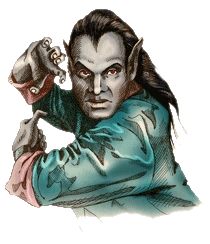
The departed spirits of the Dunmeri, and perhaps those of all races, persist after death. The knowledge and power of departed ancestors benefits the bloodlines of Dunmeri Houses. The bond between the living family members and immortal ancestors is partly blood, partly ritual, partly volitional. A member brought into the House through marriage binds himself through ritual and oath into the clan, and gains communication and benefits from the clan's ancestors; however, his access to the ancestors is less than his offspring, and he retains some access to the ancestors of his own bloodline.
~ Ancestors and the Dunmer.
During the early days of Tamriel, the Dunmer were Aldmer, the ancestor race of all Mer. Then, the daedric prince Boethiah came, and taught the Aldmer called Veloth and convinced him and his followers to abandon the ancient laws and leave the Summerset isles to the land called Resdayn, Morrowind. During this time they were known as Velothi, the followers of Veloth, and the Chimer, the changed ones. They lived their with the Dwemer, a race that scorned the religious nature of Chimer culture. As such, the relations of both races often changed from peace to war and back again quickly.
Then, Kagrenac, the Tonal Architect of the Dwarves, discovered the Heart of Lorkan deep inside Red Mountain, and used the artifacts Keening, Sunder, and Wraithguard to manipulate the Heart and power to the Numidium, the God-Machine. When the Chimer discovered this heresy, they fought with the Dwemer. When the ash settled, the Dwemer had vanished, and the Chimer's skin became ashen, and their eyes became red. So they became the Dunmer, Cursed Folk.
The Great Houses
The culture of the dark elves lies around the Great Houses, which originally ancient tribes of Velothi that coellesed and became the political leaders of Morrowind. Members of each Great House meet together in a Grand Council to govern the affairs of Morrowind, while each house forms their own council to govern their private affairs. Their are five Great Houses in the Grand Council:
House Redoran
Long serving as the protecters and Warriors of Morrowind, House Redoran values the three virtues of duty, gravity, and piety, and are considered the most honorable house.
House Telvanni
Known as the wizard-lords, House Telvanni has long been known for three things: Their great magical talent, their staunch support of slavery, their great mushroom towers, and their lack of moral code.
House Indoril
The most politically powerful house for a long time, House Indoril boasts many famous members, among them Nerevar Indoril, the Warlord who united the houses for the Battle of the Red Mountain, where he mysteriously died afterwards.
House Dren
House Dren serves as the primary agricultural house for Morrowind, and have vast Saltrice plantations across their domains.
House Hlaalu
Historically one of the weakest of the great houses, Hlaalu survived by becoming merchants and trading with Morrowind's neighbors. Eventually, when the Empire annexed Morrowind, Hlaalu used this to rise and become one of the most powerful houses
Ashlanders
Ashlanders do not live within the Great Houses, instead they live a nomadic life and follow the old ways of Veloth. They consider themselves true Velothi, and scorn the Houses and have a hatred for outlanders.
Dark Elf Names
Male Names: Adril, Arvel, Avrus, Belmyne, Dovyn, Drels, Indaryn, Jiub, Lleril, Revyn, Savos, Vanryth, Vendil, Veren.
Female Names: Aduri, Avrusa, Bralsa, Brelyna,Dreyla, Elvali, Elynea, Ildari, Irileth, Karliah, Luaffyn, Marise, Niluva.
Family Names: Aravel, Drel, Eldri, Elenil, Imyan, Nasyal, Nethri, Relvi, Sedarys, Selvayn, Sero, Telendas, Valen, Velothi.
Dark Elf Traits
Attribute Increase: Your Willpower and Speed are increased by 5.
Fire resistance: You take half damage from fire.
Sanctuary Spirit: Lesser Power: You gain a bonus to Protection equal to half your Willpower dice, rounded down, until the start of your next turn.
Ancestor Guardian: Greater Power: Summon a Ancestor Guardian for 1 hour.
High elves
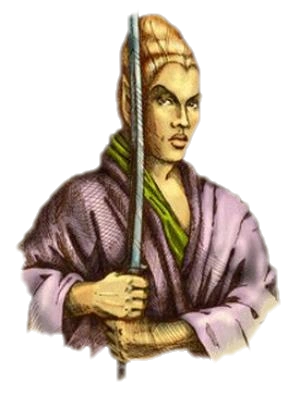
Gradually, as the society grew, social stratification increased. A hierarchy of classes began to form, which is still largely enforced in Summerset to this day. At the top are the Wise, teachers and priests, followed by the Artists, Princes, Warriors, Landowners, Merchants, and Workers. Below Workers were the beasts, such as the enslaved goblins, who the Aldmer used to perform the jobs beneath the dignity of the very least of them. The religion of the people also changed because of this change in society: no longer did the Aldmer worship their own ancestors, but the ancestors of their "betters." Auriel, Trinimac, Syrabane, and Phynaster are among the many ancestor spirits who became Gods. A group of elders rebelled against this trend, calling themselves the Psijics, the keepers of the Old Ways of Aldmeris. With their mystical powers, they were able to settle in Arteaum, away from what they considered the corruption of their society.
~ Pocket Guide to the Empire, Third Edition
The tall, golden skinned elves of the Summerset Isles count themselves the oldest and most illustrious civilization in Tamriel, and claim direct and uncorrupted descent from the Aedra themselves. Certainly, they are a long-lived, intelligent race, the high elves name for their race is the Altmer, which can mean either the High Ones, the Tall Ones, or the Snobbish Ones, depending on who is doing the translating.
Their history is a long and distant one, going back even to the Dawn era. It is said that the Aldmer, the proto-elves from which all mer descended from, aiding the god Auri-El, in the war against Lorkhan and Men. After the war, the original elven continent Aldmeris was ruined, and the survivors migrated to the Summerset Isles and Tamriel.
In the time since then, the other races of elves slowly shifted form by following the ways of one or more dieties. Only the Altmer, as they were now called, remained of the pure Aldmeri stock.
The Aldmeri Dominion
Many times over the years, the Altmer have forged a alliance between the Bosmer and the Khajiit. The result is always called the Aldmeri Dominion, and its goals was to let these three races (called the most intelligent and long lived races) rule over the younger races, mostly the races of men.
The Psijic Order
This reclusive order of monks are oldest order of mages in all of Nirn, with the first recorded reference to them being back in 1E 20. They follow the Old Way, the ancient Aldmeri religion of ancestor worship, and dwell in the mystical hidden island of Artaeum, witch they have sundered from the rest of Tamriel, making it impossible for the uninitiated to enter without their leave.
High Elf Names
Male Names: Aicantar, Calcelmo, Estormo, Linwe, Lorcalin, Quaranir, Rulindil, Runil, Sanyon, Tandil, Ulundil, Valmir.
Female Names: Arivanya, Curwe, Elenwen, Endarie, Faralda, Minorne, Nenya, Niranye, Nirya, Reldith, Taarie, Valie.
High Elf Traits
Attribute Increase: Your Intelligence and Willpower are increased by 5.
Disease immunity: You are immune to diseases.
Magicka Increase you gain a +4 to magicka, which is stacked on top of the normal magicka gained from your Intelligence.
High Elf Magic: Your high elven blood allows you to cast some minor magic spells. You may learn 1 novice spell of any school that uses Willpower as its attribute, casting it using your magicka as normal.
Orcs
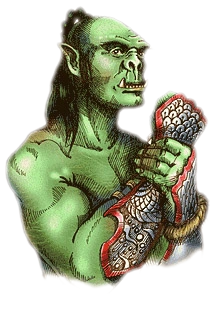
Orcs were born during the latter days of the Dawn Era. History has mislabeled them beastfolk, related to the Goblin races, but the Orcs are actually the children of Trinimac, strongest of the Altmeri ancestor spirits. When Trinimac was eaten by the Daedroth Prince Boethiah, and transformed in that foul god's insides, the Orcs were transformed as well. The ancient name for the Orcs is 'Orsimer,' which means 'The Pariah Folk.' They now follow Malacath, the remains of Trinimac.
~ The True Nature of Orcs
Cursed, ostracized, shunned. All these describe the Orcs. For ages after their transformation into their cursed form, the Orcs lived as little more then beasts, not granted rights under any nation expect the rare few they built themselves, and even those were quickly erased from the map by their neighbors.
That all changed in 3E 399, when the Gortwog gro-Nagorm won the land of the ancient kingdom Orsinium and, with a political and diplomatic finesse that is rarely seen among any race, he won Orsinium the right to be a official province in the Empire, and for all orcs to claim themselves as citizens to the Empire and entitled to fair treatment among all races of men, mer and beastfolk.
Now, many orcs serve in the Imperial Legion, were they are prized for both their fighting prowess and their skills in blacksmithing. They are also prized as Sellswords, for the nature of the Code of Malacath encourages orcs to be independent, and fight for their own.
Malacath
The vast majority of orcs follow the Daedric prince Malacath, who is the twisted remains of the Aedra Trinimac and the Daedric prince of the Scorned and the Bloody Oath. Under the worship of Malacath, the orcs forged a code known as the Code of Malacath, which is the law of their cities and strongholds. The code is as follows:
-
Do not steal.
-
Do not kill.
-
Do not attack without reason.
-
Fight with honor.
-
Protect your tribe.
-
Those who break these rules must pay the Blood Price.
Wood Orcs
The wood orcs are a group of orc clans that resides in Valenwood. Through years of living in the dense jungle, the wood orcs have become more like their Bosmer neighbors than their orcish kin, prizing "agility, speed, and geographical knowledge". If you wish to play as a wood orc, add 5 points to your Speed and Agility instead of Strength and Endurance.
Orc Names
Orc family names often have a prefix attached to them depending on their gender: males add the prefix "gro-", and femals add "gra-". The prefix is usually followed the name of the orcs parent of the same gender; but the child may also receive the name of the parent of the opposite sex. Other Orcs take their family name from the name of their clan.
Male Names: Balagog, Bashnag, Dushnamub, Gadba, Ghamorz, Kharag, Lurbuk, Mahk, Makhel, Nagrub, Oglub, Ogol, Ulag, Umurn.
Female Names: Arob, Atub, Dulug, Garakh, Ghak, Gharol, Ghorza, Murbul, Sharamph, Shel, Shuftharz, Yag, Yatul.
Clan Names: Bar, Burzag, Dushnikh, Gatuk, Gilgar, Gortwog, Nolob, Ragdam, Shargakh, Shub, Shurkul.
Orc Traits
Attribute Increase: Your Strength and Endurance are increased by 5.
Magic resistance: Whenever you make a roll against a hostile spell and roll a 1, you may reroll the dice. You must use the new number, even if it is another 1.
Berserk Greater Power: you gain an extra die to use on attack rolls and deal extra damage equal to your Strength die amount for 1 minute.
Wood elves
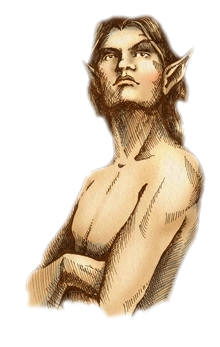
The history of Valenwood stretches back to the very beginning of recorded time: the date traditionally used as the start of the First Era is the founding of the Camoran Dynasty by King Eplear of Valenwood.
As the Aldmer began to change their ways to match their new environment, adapting to the forest in body and mind, they became known as the Bosmer. In return for the patronage of Y'ffre, the Forest God (either one of the old ancestor spirits or an aspect of the true pantheon), they swore never to kill, injure, or eat any of the vegetation of the new home.
~ Pocket Guide to the Empire, Third Edition
Natives of the great forest of Valenwood, Wood Elves have a long and storied history stretching back to the dawn of time. It is said that, in the primordial time, the spirit known as Y'ffre became the patron of the Bosmer. In return, the Wood elves promised to never kill or harm, vegetation. This, as well as several other rules, makes up what is known as the Green Pact.
The Bosmer have lived for ages in the way of their ancestors, and their tribal customs makes it hard for them to unify under one banner. But, since the beginning of the First Era, the dynasty known as the Camoran Dynasty has ruled Valenwood off and on since then. In fact, the start of the First Era is usually marked as the Coronation of the first Camoran King.
The Green Pact
The first and primary tenants of the Bosmer Religion is the Green Pact. While very few none-Bosmer know the details of the Pact, what is known is as follows:
-
Only meat and meat-based products can be consumed.
-
Wood and vegetation are forbidden as building materials, and the harm of trees and plant leaf is strictly forbidden.
-
Forbidden to alter their physical forms
Another part of the pact is known as the Meat Mandate, which states that a creature slain by a Bosmer, including men, mer, and beastfolk, must be consumed within three days of the kill. This cannibalistic portion of the Green Pact is not usually followed by Bosmer that live outside of Valenwood.
The Wild Hunt
The third tenant of the Green Pact is almost unknown outside of the Bosmer, and the non-Bosmers that do know of it often do not understand it. The legends behind the Green Pact tell of a world of chaos, a world where everything shifted and could not hold on to one form. When Y'ffre and other gods died and became the Earthbones, they established the rules of the world and order out of the chaos. But the Bosmer, who were said to witness the making of the Earthbones, learned how to shift and change those rules. The result is known as the Wild Hunt, in which a Bosmer shaman invokes a ritual that transforms all participating Bosmer into monstrous beings from before Time, warped creatures that exist between Flora and Fauna, and that kill and decour all creatures in their wake before devouring themselves in a terrible orgy of blood and bones. The Bosmer have no pride in this power, and it has been used only a handfall of times in recorded history. It is also said that the Bosmer can transform the selves into animals, but to do so is outlawed and only a rare few do so.
Wood Elf Names
Male Names: Anoriath, Dervenin, Endrast, Enthir, Faendal, Gelebros, Girduin, Gwilin, Ronthil, Syndus, Thaer, Ungrien.
Female Names: Anuriel, Aerin, Aglaril, Ardwen, Beleval, Brelas, Galathil, Nimphaneth, Nimriel, Nivenor, Wylandriah.
Wood Elf Traits
Attribute Increase: Your Agility and Speed are increased by 5.
Poison Resistance You take half damage from Poison.
Beast Tongue you can speak with animals and communicate simple ideas to them.
Stalker: You may use one extra Die on any checks made to avoid Detection.
Bretons

After defeating the invading Alessian Horde in 1E 482 Clan Direnni was scattered and effectively exhausted. As the Elves retreated to central High Rock, then finally Balfiera Isle, the Bretons stepped easily into their shoes, assuming the feudal hierarchy established by the Direnni and simply replacing them with their own noble families.
The Breton nobles, who had been forced to differentiate themselves from the Direnni part of their heritage, justified their new ascension by distancing themselves from Elves and everything Elven — ironically so, as the Elven blood ran strongest in the older noble families.
~ The Breton's: Mongrels or Paragons?
The word "Breton" comes from the old Ehlnofex word meaning "Half", for that is what they are: A race of half-men, half-elves, descended from the slaves taken from the sacking of Sarthaal and their elvish overlords. Eventually, these Breton and their human kin rebelled against their masters and created the human kingdom of High Rock. Although relations with the Nords of Skyrim has diluted their elvish ancestry, the Bretons still possess a magical affinity that rivals even the elves.
The mixture of elvish and man descent has permeated into many aspects of Breton life. Religiously, the Bretons follow the Nine Divines as well as three elvish gods: Magnus, Y'ffre, and Phynaster, though only Bretons that wish to emphasize their elvish blood worship the latter.
High Rock
High Rock stands at the Western Border of Skyrim and the Northern Border of Hammerfell, and is known for housing the oldest structure in Nirn, the Adamantine Tower, where, it is said, that the Divines all gathered to decide the fate of Nirn.
While High Rock is united in culture and language, it is politically shattered, with a large number of small kingdoms vying for control of the land. Five main kingdoms (Daggerfall, Camlorn, Northpoint, Evermore, and Wayrest) dominate the political scene, each with a large territory. All of High Rock uses a feudal system, with a noble class, merchant class, and peasant class.
Reachmen
Their leaves in Skyrim, in the hold known as the Reach, a group of Bretonic men known as the Reachmen. They possess many of the same characteristics of the Bretons, yet the also have a mix of Nordic and Imperial blood in them. The Reachman live a tribal lifestyle, and worship who they call the Old Gods, which are a curious mix of Aedra and Daedra.
Breton Names
Male Names: Arniel, Belchimac, Belethor, Cosnach, Cynric, Dalan, Delvin, Eltrys, Imedhnain, Mercer, Uraccen, Weylin.
Female Names: Babette, Bothela, Daighre, Delphine, Madena, Mirabelle, Sabine, Senna, Sorine, Sybille, Uaile, Vivienne.
Family Names: Admand, Frey, Guevenne, Jondrelle, Jurard, Marence, Merchad, Morrard, Motierre, Nytte, Onis, Rarnis.
Breton Traits
Attribute Increase: Your Willpower and Endurance are increased by 5.
Magicka Increase: you gain a +2 to magicka, which is stacked on top of the normal magicka gained from your Intelligence.
Mage Blood: You can cast the novice Mysticism spell Dispel normally, using your magicka.
Dragon Skin: Greater Power: You take half damage from all spells for 1 minute.
Imperials
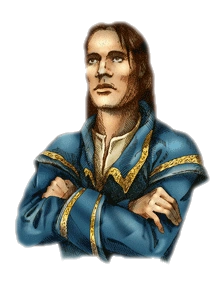
Although Ayleid rule over all of Cyrodiil was indeed broken in 1E 243, this was only one of the most obvious stages near the end of a long decline. The first two centuries of the First Era saw increasing strife between the great Ayleid lords of Cyrodiil. Alessia appears to have taken advantage of a period of civil war to launch her uprising. Imperial historians have traditionally attributed her victory to intervention from Skyrim, but it appears that she had at least as much help from rebel Ayleid lords during the siege of White-Gold Tower.
~ Last King of the Ayleids
Imperials, or Cyrodiils, are a race of men descended from the Nedic proto-humans. This particular branch of Nedes were enslaved by the now-extinct Alyieds, or Wild Elves. They were liberated from this enslavement by Alessia, the Slave Queen of Cyrodiil.
After the rebellion, Allessia and her followers forged the first human Cyrodiilic empire, and, from that day forth, the Cyrodiils have been known as Imperials, and are famous for building vast empires. The current Cyrodiilic empire, the third empire of Cyrodiil, spans across virtually all of Tamriel, from Skyrim to Elswyr, and the Black Marsh to Hammerfell.
Imperials are considered to be clever and well-spoken, and they consider themselves to be civilized and free-thinking. Imperials often make shrewd and skilled diplomats and traders, and usually prefer diplomacy to force. However, they are more then willing to use their vast Legions if they think it necessary.
The Legion
Individually speaking, Imperials are rather weak. But, together, they make some of the most efficient and powerful soldiers imaginable. The Imperial Legion has proven itself a strong fighting force, one strong enough to hold together a empire of vastly differing cultures and religions. Just the threat of imperial steel has prevented many a rebellion before it even could begin.
The Nine Divines
The state religion of the Empire, and the primary religion throughout Tamriel, is the Nine Divines. Each of the Divines is said to reflect a certain aspect of life, and followers of the Divines seek to emulate the example of the Divines in order to live a good and prosperous life.
Originally their were only eight Divine and a series of lesser gods in the religion. But, when Tiber Septim died, it is said that he rose to godhood and is now worshiped throughout the empire as the hero-god of men and the god of honor and the state. And can be said to be the closest thing the Empire has to a divine patron.
Imperial Names
Male Names: Adventus, Cicero, Corpulus, Lucan, Mallus, Septimus, Silus, Titus, Tyranus, Vantus, Verulus, Xander.
Female Names: Adelaisa, Adrianne, Carlotta, Illia, Indara, Lucia, Mila, Silana, Silvia, Sosia, Valga, Viola, Vittoria
Family Names: Aretino, Arius, Baenius, Carius, Duilis, Mede, Pelagia, Signus, Sorenshield, Tituleius, Tragus, Tullius.
Imperial Traits
Attribute Increase: Your Personality and Speed are increased by 5.
Star of the West you gain an extra dice to use on saving throws against being frightened, frenzied, or calmed.
Voice of the Emperor: Greater Power: Choose a creature within short range of you that can hear you. The target must make a conflicting Willpower roll against your Personality. On a failed save, the target has disadvantage on all attack rolls against your allies and cannot attack you until you damage them or the end of your next turn.
Nords

Nords consider themselves to be the children of the sky. They call Skyrim the Throat of the World, because it is where the sky exhaled the North Winds on the land and formed them. They see themselves as eternal outsiders and invaders, and even when they conquer and rule another people; they feel no kinship with them (this especially with the Chimer and Dwemer in the days of the Dwemereth and the first forming of the Great Houses).
~ Children of the Sky
A race of hardy warriors and fearless adventurers, the Nords have their place in the beginning of time. They originally came from the freezing continent of Atmora, and, through conquest, established the country of Skyrim, a land bounded be mountains and seas. They continued forward, conquering parts of High Rock and even parts of Morrowind before the Chimer became Dunmer.
Skyrim as a country was old even before Cyrodiil was ruled by men, and the Nords supplied plentiful help towards Alessia and her rebellion, and has always been staunch supporters of the Cyrodiilic Empires. Despite this, Nords has always been fiercely independent by nature, for the harsh climate of the north has bred that in for thousands of years. Nords are renown across Tamriel both for their martial prowess, their high value of honor and tradition, and love of mead.
The Voice
Of all the gods in their pantheon, the Nords have a unique connection with the sky goddess Kyne, or Kynerath as she is known to the Imperials. It was She, it is said, that bestowed upon the ancient Nords the gift of the Thu'um, or Storm Voice. A Nord that could channel the Thu'um was called a Tongue, and it is said that the most powerful of the Tongues could not even speak without causing widespread destruction, and that they had to go gagged, and speak through the use of runes.
However, after the Battle of Red Mountain, a battle in which the Nords, Dark Elves and Dwarves all fought and the Dwarves themselves disappeared from Nirn, the use of the Voice as a weapon was lost, and to seek it out again is expressively forbidden by the Empire. However, the Greybeards of High Hrothgar still practice the way of the Voice as a peacful tool for enlightenment.
The Skaal
In the frozen island of Solsthiem, their lives a tribe of Nords known as the Skaal. The Skaal believe in a being known as the All-Maker, and that the All-Maker gifted them with nature, and that they must venerate and respect nature. The Shamans of the Skaal are known to have great magical powers.
Nord Names
Male Names: Balgruuf, Grimvar, Miraak, Ragnar, Rorik, Sinding, Tolan, Tolfdir, Torbjorn, Valdr, Vulwulf, Wulfgar, Yngvar.
Female Names: Anise, Astrid, Drifa, Fralia, Frea, Gisli, Ingrid, Jora, Lillith, Lydia, Mjoll, Morwen, Serana, Ysolda.
Clan Names: Blackthorn, Ebonhand, Ironhand, Rockbreaker, the Unbroken, the Wanderer, the Warlock, Trollsbane, Whitemane, Windcaller.
Nord Traits
Attribute Increase: Your Strength and Agility are increased by 5.
Martial Training: You start with 1 level in on of the following skills of your choice:
Axe, Blunt, Spear, or Medium armor.
This cannot bring a skill above Apprentice.
Cold Resistance: You are resistant to frost damage and are acclimatized to cold weather.
Woad: Greater Power: increase your Protection by 5 for 1 minute.
Redguard
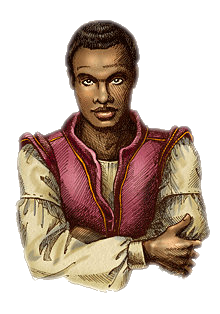
Hunding belonged to the sword-singers. This element of empire society grew from the desert artisans and was initially recruited from the young sons and daughters of the high families. They built the first temple to the unknown gods of War and build a training hall "The Hall of the Virtues of War." Within a few generations the way of the sword - the song of the blade - had become their life. The people of the blade kept their poetry and artisanship in building beautiful swords woven with magic and powers from the unknown gods. The greatest among them became known as Ansei or "Saints of the Sword." Each of these began their own training schools teaching their individual way of the sword. Those Ansei of the highest virtue wandered the country side engaging in battle, righting wrongs, and seeking to end the strife.
~ Redguards, Their History and Their Heroes
Of all the races of men in Tamriel, the Redguards are unique in the fact that they are not descended from the ancient Atmorans. Instead, the Redguard come from the ancient continent of Yokuda, a place said to be the remnant of the world before this world. For over a thousand years the Redguard, or Yokudans as they were then called, lived there. Then, in 1E 792, the entire continent sank beneath the waves in a cataclysmic event as mysterious as the continent itself. The survivors of that event spent almost a decade in the island of Herne, between Yokuda and Tamriel. Then, finally, on the 808th year of the First era, the first of the Yokudans arrived on the coast of Hammerfell as the Ra gada, the "Warrior Wave", a name that would soon be changed to their modern name, Redguard.
The Book of Circles
Written by Frandar Hunding before the sinking of Yokuda, the Book of Circles is a tome of swordsmanship that is revered throughout Hammerfell. All households keep a copy of it in a alcove, and it embodies the Redguards reverence of the Sword, which they believe is an extension of their soul and a symbol of honor.
Below is a list of some of the Maxims from the Book of Circles, which are commonly quoted by Redguards;
-
Train your opponent to make the wrong response.
-
The worst action executed with vigor is superior to the best action executed timidly.
-
A thrust is elegant, and a cut is powerful, but sometimes the right action is a head-butt.
-
To shed the mantle of fear is to cast it upon your enemy.
-
Your opponent's sword is not your enemy. Watch your opponent, not his sword.
-
Discover your foe's habits and discard your own.
-
A closed line is not open.
Sword Singers
The Sword Singers are an ancient school of martial philosophy that originated in Yokuda. It professes that the sword is the most perfect weapon, and that to devote oneself to it is the best way to seek enlightenment.
The most powerful of the Sword Singers were known as the Ansei, and, it is said, they could create ethereal swords with sheer force of will. These blades were said to be deadlier than the sharpest steel, and could be used by the Ansei as a magical focus to perform great magic.
Redguard Names
Male Names: Ahtar, Alesan, Amren, Azzada, Ennis, Falion, Kayd, Kematu, Maramal, Namasur, Nazir, Razelan, Shadr, Talib.
Female Names: Adara, Anwen, Braith, Eriana, Kerah, Lu'ah, Niyya, Rayya, Saadia, Sayma, Seren, Sudi, Tonilia, Yisra, Zaria.
Redguard Traits
Attribute Increase: Your Agility and Endurance are increased by 5.
Poison resistance: You are resistant to poison damage.
Blade Training you start the game with 1 extra level in Short Blades or a Long Blades. This cannot bring a skill above Apprentice.
Adrenaline Rush: Greater Power: you can enter a state of heightened aggression. For 1 minute, the total amount of Fatigue you regenerate each turn is doubled.
Argonian

The Argonian sat at the back of the craft and used his whip-like tail to propel and navigate the craft. They traveled quickly around swirling pools of slime that stank of centuries of putrefaction, past pinnacled mountains that seemed sturdy but suddenly fell apart at the slightest ripple in the still water, under bridges that might have once been metal but were now purely rust.
"Everything in Tamriel flows down to Black Marsh," Shehs said.
As they slid through the water, Shehs explained to Scotti that the Agacephs were one of the many Argonian tribes that lived in the interior of the province, near the Hist, finding little in the outside world worth seeing. He was fortunate to have been found by them. The Nagas, the toad-like Paatru, and the winged Sarpa would have killed him on the spot.
There were other creatures too to be avoided. Though there were few natural predators in inner Black Marsh, the scavengers that rooted in the garbage seldom shied away from a living meal. Hackwings circled overhead, like the ones Scotti had seen in the west.
~ The Argonian Account.
Natives of the Black Marsh, the Argonians are a race of humanoid lizards that have thrived in a place inhospitable for all other sentient races. Their civilization was had rose and fallen before the High Elves arrived to Tamriel, and their massive stone ziggurats have survived throughout the ages unscathed by the swamp waters, a incredible feat few other races can boast of.
By the beginning of the First Era the Argonian civilization had been all but lost, and the remaining Argonians lived in a tribal society. Many of the Argonians were captured by Chimer slavers, a practice that has continued almost to the present day.
Despite this weakening practice, the Argonians were still strong enough to beat back the Alessian empire, and even the great emperor Reman II could only conquer the northern and eastern edges of the Marsh.
It wasn't until the reign of the emperor Tiber Septim that the Black Marsh became entirely part of the Empire, and even then, Tiber Septim won the Marsh through treaty rather then force of arms.
The Hist
The Hist Trees of Black Marsh are said to be the original life forms of Tamriel, one that was original from the World Before that survived and regrew in Nirn. It is said by the Argonians that the Hist Trees created them, and because of this the Argonians venerate the Hist trees and commune with them. The Sap of the Hist Tree grants visions to Argonians who consume it, and to non-Argonians it is a powerful and dangerous hallucinogenic that creates a terrible bloodlust inside the drinker.
Shadowscales
Shadowscales are Argonains who are born underneath the sign of the Shadow constellation. They worship the god of the void Sithis, and serve both as law enforcers in the Black Marsh, and are given to the Dark Brotherhood when they come of age, and are taught the secrets of stealth and assassination.
Argonian Names
Most Argonians translate their names into Tamrielic or Cyrodiilic. This names are descriptive and reflect the nature of the name bearer.
Male Names: Madesi, Veezara, Brand-Shei, Jaree-Ra, Talen-Jei, Scouts-Many-Marshes, Stands-In-Shallows, Watches-The-Roots
Female Names: Deeja, Keerava, Shahvee, Wujeeta, From-Deepest-Fathoms, Takes-In-Light, Amber-Eyes, Barters-with-Wit.
Argonian Traits
Attribute Increase: Your Intelligence and Speed are increased by 5.
Poison Resilience: You gain 1 extra die on rolls made to resist poison.
Waterborn: You can breathe both air and water.
Hist Skin: Greater Power: You regain health equal to your normal health regeneration.
Khajiit

And Azurah came to her and said, "Poor Nirni, stop your tears. Azurah makes for you a gift of a new people." Nirni stopped weeping, and Azurah spoke the First Secret to the Moons and they parted and let Azurah pass. And Azurah took some forest people who were torn between man and beast, and she placed them in the best deserts and forests on Nirni. And Azurah in her wisdom made them of many shapes, one for every purpose. And Azurah named them Khajiit and told them her Second Secret and taught them the value of secrets. And Azurah bound the new Khajiit to the Lunar Lattice, as is proper for Nirni's secret defenders. Then Azurah spoke the Third Secret, and the Moons shone down on the marshes and their light became sugar.
But Y'ffer heard the First Secret and snuck in behind Azurah. And Y'ffer could not appreciate secrets, and he told Nirni of Azurah's trick. So Nirni made the deserts hot and the sands biting. And Nirni made the forests wet and filled with poisons. And Nirni thanked Y'ffer and let him change the forest people also. And Y'ffer did not have Azurah's subtle wisdom, so Y'ffer made the forest people Elves always and never beasts. And Y'ffer named them Bosmer. And from that moment they were no longer in the same litter as the Khajiit
~ Words of Clan Mother Ahnissi
The origins of the Khajiit are lost to time, with several theories, ranging from them being descendants of ancient Aldmer or originating from a intelligent race of felines. What is known, however, is that the Khajiit were one of the first peoples of Tamriel, with Topal the Pilot, a Aldmer explorer in the Merethic Era, describing creatures similar to the modern day Khajiit.
The Khajiit have prided themselves in their cunning, speed, and quickness in both body and wit, and are notorious as thieves and criminals, and some cities forbid Khajiit from entering.
The Lunar Lattice
The creation myth of the Khajiit state that the Khajiit were created to protect Nirn, and that, to do that, they were created in many different forms. Whether or not the myth stated above is true, what is true is that, depending on the phases of the two moons, a Khajiit infant could be one of several different 'kinds' of Khajiit. This change is based entirely on the moons, and is not determined by factors such as parentage. Below is a list of some of the more common types of Khajiit, though their are more
-
Ohmes are Khajiit born when Secunda is full and Masser is new. Physically the look almost identical to Bosmer, and because of this Ohmes often tattoo their faces with feline aesthetics.
-
The Suthay-Raht, born when Secunda is waning and Masser is new, are much more feline then the Ohmes and Ohmes-Raht, with wildly varying fur colors and patterns, a tail, retractable claws on their hands and feet, and extremely feline faces.
-
Cathay-Raht are born when both Secunda and Masser are in their Waxing phase, and look similar to the Suthay-Raht, only bigger and stronger. They are also known as jaguar-men.
Khajiit Names
Khajiit names are preceded by a honorific. The list of honorifics is shown below, with translations in parenthesis.
Male Honorifics: Dar (clever), Dro (wise), Ja/Ji/J (young), Jo (scholar, mage) Ra, (leader), Ri (Great leader).
Female Honorifics: Dra (Wise One), Daro (Quick/Clever), Ko (scholar, Mage), La (promiscuous maiden).
Nuetral Honorifics Do (Warrior), M/Ma (Apprentice), Qa (Unknown), S (Adult),
Male Names: Drmarash, J'darr, J'datharr, J'Kier, J'zargo, J'zhar, Kharjo, Kesh, Ma'dran, Ma'jhad, Ma'randru-jo, Ma'tasarr, Ma'zaka, M'aiq, Ra'jirr, Ra'kheran, Ri'saad, Vasha
Female Names: Ahkari, Ahjisi, Ahnassi, Atahbah, Habasi, Idhassi, Khayla, Ra'zhinda, Shavari, Shivani, Tsavani, Tsrasuna.
Khajiit Traits.
Attribute Increase: Your Personality and Agility are increased by 5.
Night Eye You see in dim light within 60 feet of you as if it were bright light, and in darkness as if it were dim light. You can't discern color in darkness, only shades of gray.
Claws: Your claws are natural weapons, allowing you to deal 2 damage on unarmed strikes instead of 1.
Eye of Fear Greater Power: 1 creature of your choice within medium range of you must make a Willpower saving throw against your Personality. On a failed save, the creature is frightened of you until the end of its next turn.
Acrobatics
Novice
When you reach level 1 on this skill, you can climb up vertical objects such as walls without needing to make a ability check, provided the wall has adequate hand and footholds.
Apprentice
When you reach level 2 on this skill, you can now jump twice as high, and you take half the damage normal for falling.
Journeyman
When you reach level 3 on this skill, you can use your secondary action to dodge out of the way off danger, making all attacks rolls against you this round be made with 1 less die.
Expert
When you reach level 4 on this skill, you can use your secondary action to double your jump distance for this turn.
Master
When you reach level 5 on this skill, you travel your normal speed while in difficult terrain.
Alchemy
Novice
When you reach level 1 on this skill, you may use a alchemy set with suffering disadvantage.
Apprentice
When you reach level 2 on this skill, you may add a extra die on checks made while making a potion or poison.
Journeyman
When you reach level 3 on this skill, you may combine up to three ingredients when making a potion or poison.
Expert
When you reach level 4 on this skill, the potency all potions and poisons you make are increased by 1.
Master
When you reach level 3 on this skill, you may combine up to four ingredients when making a potion or poison.
Alteration
Novice
When you reach level 1 on this skill, you can cast novice level alteration spells.
Apprentice
When you reach level 2 on this skill, you can cast apprentice level alteration spells.
Journeyman
When you reach level 3 on this skill, you can cast journeyman level alteration spells. In addition, choose one of the following abilities:
-
Whenever you cast a duration spell with a range of touch on a creature other than yourself, you may also cast it on yourself for free at half the duration.
-
Whenever you cast a Alteration spell of novice level or higher, your deflection is increased by 1 until the end of your next turn.
Expert
When you reach level 4 on this skill, you can cast expert level alteration spells. In addition, all Novice alteration spells can be cast at no cost.
Master
When you reach level 5 on this skill, you can cast master level alteration spells, and you can use a Primary action on your turn to spend 10 Magicka and turn one square foot of a inorganic substance, such as stone, into another inorganic substance, such as iron.
This effect lasts for 10 minutes, after which the material returns to normal.
Athletics
Novice
When you reach level 1 on this skill, you may use your side action rather than your secondary action to move. You may still only move on your turn.
Apprentice
When you reach level 2 on this skill, you can spring up quickly when knocked down. Getting up from being prone no longer costs a action.
Journeyman
When you reach level 3 on this skill, being in water or other difficult terrains no longer reduce your movement speed.
Expert
When you reach level 4 on this skill, your movement speed is increased by one extra range band.
Master
When you reach level 5 on this skill, you can use the move action for free, without spending your secondary action.
Axe
Novice
When you reach level 1 on this skill, you can use your secondary action on your turn to expend 5 stamina and make a power attack. Your next Axe attack done this turn deals extra damage equal to the number of dice you used for the attack roll.
Apprentice
When you reach level 2 on this skill, you can push forward through enemies. Whenever you hit an enemy with a Axe, you may move up a range band as part of that action.
Journeyman
When you reach level 3 on this skill, your power attacks slow enemies down, making them easier to hit. The targets Deflection is reduced by 1 until the end of your next turn.
Expert
When you reach level 4 on this skill, your blows can soften enemies up for your allies. Whenever you hit a target with a Axe, all allies gain an extra attack die against that target until the start of your next turn.
Master
When you reach level 5 on this skill, you can make a power attack without using your secondary action.
Block
Novice
When you reach level 1 on this skill, whenever a creature attacks you and misses, they are knocked back to short range if you have a shield equipped.
Apprentice
When you reach level 2 on this skill, you may add +1 to your total protection whenever you have a shield equipped.
Journeyman
When you reach level 3 on this skill, whenever you attack a enemy with a weapon, you can use your secondary action to bash them with a shield, if you have one equipped. Agility is your ability for the attack roll, and the target takes damage equal to the amount of deflection your shield provides.
Expert
When you reach level 4 on this skill, you may add +1 to both your protection and deflection whenever you have a shield equipped. This effect stacks with your apprentice skill.
Master
When you reach level 5 on this skill, whenever a enemy hits you, roll a die. on a roll of 6, reduce the damage taken by that attack by an amount equal to the deflection bonus your shield provides.
Blunt Weapon
Novice
When you reach level 1 on this skill, you can use your secondary action on your turn to expend 5 stamina and make a power attack. Your next blunt weapon attack done this turn deals extra damage equal to the number of dice you used for the attack roll.
Apprentice
When you reach level 2 on this skill, your blows can knock enemies back. Whenever you hit a target with a blunt weapon power attack, they are knocked to short range.
Journeyman
When you reach level 3 on this skill, you can move forward and add your momentum to your blows. When you move forward at least one range band in a straight line before making an attack with a blunt weapon, you can reroll one of your attack die and use either amount.
Expert
When you reach level 4 on this skill, you can put more heft into you blows. Your blunt attacks now deal a extra damage equal to half the number of Strength die you have (rounded down).
Master
When you reach level 5 on this skill, you can make a power attack without using your secondary action.
Conjuration
Novice
When you reach level 1 on this skill, you can cast novice level conjuration spells.
Apprentice
When you reach level 2 on this skill, you can cast apprentice level conjuration spells.
Journeyman
When you reach level 3 on this skill, you can cast journeyman level conjuration spells. In addition, choose one of the following abilities:
-
Your bound weapons become Mystic weapons, which deal bonus damage equal to your Conjuration level.
-
You may use your primary action on your turn to empower your summoned or raised creatures, giving them one extra attack die that turn.
Expert
When you reach level 4 on this skill, you can cast expert level conjuration spells. In addition, all Novice conjuration spells can be cast at no cost.
Master
When you reach level 5 on this skill, you can cast master level conjuration spells, and you may have up to two reanimated or summoned creatures under your control at a time. ither the protection or damage of the item by 1. This point disappears after the item is reduced back to its original state.
Destruction
Novice
When you reach level 1 on this skill, you can cast novice level destruction spells.
Apprentice
When you reach level 2 on this skill, you can cast apprentice level destruction spells.
Journeyman
When you reach level 3 on this skill, you can cast journeyman level destruction spells. In addition, choose one of the following effects:
-
Choose one of the following elemental types: Fire, Frost, or Shock. Destruction spell attacks made with the chosen element does extra damage equal to your Destruction level.
-
All your Damage Attribute spells deal extra damage to that attribute equal to your Destruction level.
Expert
When you reach level 4 on this skill, you can cast expert level destruction spells. In addition, all Novice destruction spells can be cast at no cost.
Master
When you reach level 5 on this skill, you can cast master level destruction spells, and you may spend your secondary action on your turn to empower a spell. Your next spell attack deals extra damage equal to the number of dice you used for the attack roll.
Enchanting
Novice
When you reach level 1 on this skill, you can make enchantments on a enchanting table, provided you know the enchantment.
Apprentice
When you reach level 2 on this skill, you have learned how to extract the knowledge of enchanted items better. Learning a enchantment does not cause the item to be destroyed.
Journeyman
When you reach level 3 on this skill, you have learned how to fortify enchantments that require charges. Whenever you craft a enchantment that uses charges, the amount of charges are doubled.
Expert
When you reach level 4 on this skill, you learn how to enhance the power of your enchantments. Whenever you use a soul to craft a enchanted item, the soul is considered one level higher for the purpose of enchantment level.
Master
When you reach level 5 on this skill, you can create two enchantments on the same item.
Hand to Hand
Novice
When you reach level 1 on this skill, your unarmed attacks deal 2 damage, and you can use your secondary action on your turn to expend 5 stamina and prepare a power attack. Your next unarmed attack done this turn deals extra damage equal to the number of dice you can use for the attack roll.
Apprentice
When you reach level 2 on this skill, your unarmed damage equals your total amount of Speed dice (Minimum of 1).
Journeyman
When you reach level 3 on this skill, your unarmed attacks count as magical for the purpose of overcoming resistances and immunities to nonmagical attacks.
Expert
When you reach level 4 on this skill, you can make stunning strikes with your fists. Whenever you make a unarmed power attack and hit the target, you may choose to either deal the extra damage or make the target stunned until the end of your next turn.
Master
When you reach level 5 on this skill, you can make a power attack without using your secondary action.
Heavy Armor
Novice
When you reach level 1 on this skill, you can wear heavy armor without disadvantage.
Apprentice
When you reach level 2 on this skill, the heft of your armor allows you to stand strong in the face of powerful blows. You cannot be knocked back while wearing heavy armor.
Journeyman
When you reach level 3 on this skill, the weight of your armor allows you to move with the force of a juggernaut. You may add a extra die to Strength rolls made to knock aside any creatures or objects in your way while in heavy armor.
Expert
When you reach level 4 on this skill, you have learned how to use heavy armor more effectively. You gain a bonus to your protection equal to your half total amount of Endurance dice while wearing heavy armor.
Master
When you reach level 5 on this skill, you take half damage from non-magical weapons while wearing heavy armor.
Illusion
Novice
When you reach level 1 on this skill, you can cast novice level illusion spells.
Apprentice
When you reach level 2 on this skill, you can cast apprentice level illusion spells.
Journeyman
When you reach level 3 on this skill, you can cast journeyman level illusion spells. In addition, choose one of the following effects:
-
All your spells can be cast stealthily, without needing to make a Agility roll to conceal it.
-
All creatures attempting to resist your illusion spells must use one less die.
Expert
When you reach level 4 on this skill, you can cast expert level illusion spells. In addition, all Novice Illusion spells can be cast at no cost.
Master
When you reach level 5 on this skill, you can cast master level illusion spells, and your Illusion spells can effect Daedra and the undead.
Light Armor
Novice
When you reach level 1 on this skill, you can wear light armor without suffering disadvantage.
Apprentice
When you reach level 2 on this skill, you may use your primary action to dodge, giving you extra deflection equal to half your Agility dice until the start of your next turn (minimum of 1).
Journeyman
When you reach level 3 on this skill, whenever a creature hits you with a weapon attack, you may move up a range band away from them for free.
Expert
When you reach level 4 on this skill, you can add half the total number of Agility die you have to your Protection, as long as you are wearing only light armor.
Master
When you reach level 5 on this skill, whenever a enemy hits you, the total damage is reduce by an amount equal to the total number of Agility die you have.
Long Blades
Novice
When you reach level 1 on this skill, you can use your secondary action on your turn to expend 5 stamina and make a power attack. Your next long blade attack done this turn deals extra damage equal to the number of dice you used for the attack roll.
Apprentice
When you reach level 2 on this skill, you can use your weapons extra reach to good use. You may use a secondary action on your turn to allow you to attack targets at short range with your long blade until the end of that turn.
Journeyman
When you reach level 3 on this skill, you can use your secondary action to attempt to disarm a opponent. You both make conflicting Strength rolls. If you win, one item that the target is carrying is dropped at their feet.
Expert
When you reach level 4 on this skill, whenever you make a long blade power attack and roll at least 2 more successes then needed to hit, the target is also knocked down.
Master
When you reach level 5 on this skill, you can make a power attack without using your secondary action.
Marksman
Novice
When you reach level 1 on this skill, you can use ranged weapons such as bows and darts without disadvantage.
Apprentice
When you reach level 2 on this skill, you may use your secondary action on your turn to add 1 extra die to your next ranged attack made before the end of your turn.
Journeyman
When you reach level 3 on this skill, Whenever you make a ranged weapon attack, you can use your secondary action to make another attack. This second attack does not benefit from any Marksman skills you have.
Expert
When you reach level 4 on this skill, If you make a ranged attack and you use your secondary action to aim, you may reroll any of your dice one time, using the new amount.
Master
When you reach level 5 on this skill, your ranged weapon attacks deal extra damage equal to half the total amount of Agility dice you have.
Medium Armor
Novice
When you reach level 1 on this skill, you can wear medium armor without disadvantage.
Apprentice
When you reach level 2 on this skill, you have some of the benefits of light armor, some of heavy armor. You can wear light and heavy armor without imposing disadvantage.
Journeyman
When you reach level 3 on this skill, you have learned how to shrug off blows while wearing medium armor. You can no longer be knocked back while wearing medium armor.
Expert
When you reach level 4 on this skill, you have learned how to use medium armor more effectively. You gain a bonus to your protection equal to your half total amount of Endurance dice while wearing medium armor.
Master
When you reach level 5 on this skill, you have learned how to shrug off blows and use it to empower your own strikes. When you are hit with a melee attack while wearing medium armor, you can increase your next Melee attack damage by an amount equal to half your Protection, rounded down.
Mercantile
Novice
When you reach level 1 on this skill, You gain 1 extra die whenever you attempt to barter or haggle.
Apprentice
When you reach level 2 on this skill, You may ignore any critical failures one rolls when bartering with someone of the opposite gender as you.
Journeyman
When you reach level 3 on this skill, A items poor condition no longer imposes disadvantage on rolls made to sell it.
Expert
When you reach level 4 on this skill, You gain 1 extra die whenever you attempt to barter or haggle. This stacks with your novice skill.
Master
When you reach level 5 on this skill, A merchant's negative disposition towards you no longer increases the prices of their items.
Mysticism
Novice
When you reach level 1 on this skill, you can cast novice level mysticism spells.
Apprentice
When you reach level 2 on this skill, you can cast apprentice level mysticism spells.
Journeyman
When you reach level 3 on this skill, you can cast journeyman level mysticism spells. In addition, choose one of the following effects:
-
All Willpowers saving rolls made to resist your mysticism effects have disadvantage.
-
Your Detect spells range is increased by one range band.
Expert
When you reach level 4 on this skill, you can cast expert level mysticism spells. In addition, all Novice mysticism spells can be cast at no cost.
Master
When you reach level 5 on this skill, you can cast master level mysticism spells, and when you roll to resist the effects of a spell, you gain a extra die on that roll.
Restoration
Novice
When you reach level 1 on this skill, you can cast novice level restoration spells.
Apprentice
When you reach level 2 on this skill, you can cast apprentice level restoration spells.
Journeyman
When you reach level 3 on this skill, you can cast journeyman level restoration spells. In addition, choose one of the following effects:
-
Undead take extra damage from your offensive restoration spells, equal to your Restoration level.
-
Your Restore Health and Restore Fatigue spells restore a extra amount equal to your Restoration level.
Expert
When you reach level 4 on this skill, you can cast expert level restoration spells. In addition, all Novice restoration spells can be cast at no cost.
Master
When you reach level 5 on this skill, you can cast master level restoration spells, and whenever you cast a healing spell on another creature, you may heal yourself.
Security
Novice
When you reach level 1 on this skill, you can use both your primary and secondary action on your turn to gain a extra amount of die equal to half your Intelligence die amount, rounded down, when using lockpicks.
Apprentice
When you reach level 2 on this skill, you can use your secondary action to pick locks as opposed to your primary action.
Journeyman
When you reach level 3 on this skill, you can use your lockpicks to disarm nonmagical traps.
Expert
When you reach level 4 on this skill, your lockpicks no longer break as a result of failing your lockpicking roll.
Master
When you reach level 5 on this skill, whenever you fail a check made using lockpick by 1-3 failures, it still counts as a success.
Short Blades
Novice
When you reach level 1 on this skill, you can use your secondary action on your turn to expend 5 stamina and make a power attack. Your next short blade attack done this turn deals extra damage equal to the number of dice you can use for the attack roll.
Apprentice
When you reach level 2 on this skill, you learn how to get your blade into the chinks in opponents armor. You ignore up to 2 protection whenever you hit a target with a short blade attack.
Journeyman
When you reach level 3 on this skill, you can now attack twice with a short blade with a single primary action.
Expert
When you reach level 4 on this skill, you can now attack with blazing speed. Whenever you attack a creature with a short blade, you may use your secondary attack to make another short blade attack.
Master
When you reach level 5 on this skill, you can make a power attack without using your secondary action.
Smithing
Novice
When you reach level 1 on this skill, you can make Quality 0 items in a forge, and you can repair nonmagical weapons and armors, restoring 1 point of durability for each hour you work on it.
Apprentice
When you reach level 2 on this skill, you can make Quality 1 items in a forge, and you each hour of repairing gives you an extra 1 point of durability restored.
Journeyman
When you reach level 3 on this skill, you can make Quality 2 items in a forge, and you can now repair magical weapons and armors.
Expert
When you reach level 4 on this skill, you can make Quality 3 items in a forge, and repairing weapons and armor now take half the time.
Master
When you reach level 5 on this skill, you can make Quality 4 items in a forge, and you can enhance items. Whenever you repair a item, you can give it extra Durability points equal to half the total durability of the item. For every 5 extra points added, raise either the protection or damage of the item by 1. This point disappears after the item is reduced back to its original state.
Sneak
Novice
When you reach level 1 on this skill, you may make a versus Agility check against a nearby target to attempt to pickpocket them. On a successful save you may take 1 small item from them that they do not have equipped.
Apprentice
When you reach level 2 on this skill, any weapon attacks made while undetected do extra damage equal to the amount of Speed die you have.
Journeyman
When you reach level 3 on this skill, you may pickpocket small equipped items from targets, such as rings or necklaces.
Expert
When you reach level 4 on this skill, you have advantage in all stealth rolls.
Master
When you reach level 5 on this skill, your sneak attacks deal extra damage equal to double the amount of Speed die you have.
Spears
Novice
When you reach level 1 on this skill, you can use your secondary action on your turn to expend 5 stamina and make a power attack. Your next spear attack done this turn deals extra damage equal to the number of dice you can use for the attack roll.
Apprentice
When you reach level 2 on this skill, you learn how to use the reach of your weapon more effectively. You no longer have disadvantage attacking targets at short range with a spear.
Journeyman
When you reach level 3 on this skill, whenever you make power attack with a spear, you may add a extra die to the attack roll.
Expert
When you reach level 4 on this skill, you can use your spears to pierce through tough foes. You can ignore up to half of a creatures protection rating whenever you make a spear power attack.
Master
When you reach level 5 on this skill, you can make a power attack without using your secondary action.
Speechcraft
Novice
When you reach level 1 on this skill, you gain an extra die on Etiquette, Performance, or Streetwise checks.
Apprentice
When you reach level 2 on this skill, your natural charm exudes for all to see. The natural disposition of humanoids towards you is increased by 10.
Journeyman
When you reach level 3 on this skill, you can easily catch people off guard when speaking with them. Any attempts made by creatures to deceive you or resist either your Streetwise or Etiquette checks is made with 1 less die.
Expert
When you reach level 4 on this skill, you gain an extra die on Etiquette, Performance, or Streetwise checks. This effect stacks with your novice skill.
Master
When you reach level 5 on this skill, you know how to use a persons disposition of you to your best advantage. You can add a extra 2 dice to rolls made to persuade a creature that has a favorable disposition to you, and an extra 2 dice on rolls to intimidate a creature that has a unfavorable disposition towards you.
Unarmored
Novice
When you reach level 1 on this skill, your total Deflection equals your total amount of Speed dice (Minimum of 1) if you are not wearing armor.
Apprentice
When you reach level 2 on this skill, your total your total Protection equals quarter your total amount of Speed dice, rounded down, if you are not wearing armor (Minimum of 1).
Journeyman
When you reach level 3 on this skill, your total Deflection is increased by 1 if not wearing any armor.
Expert
When you reach level 4 on this skill, magical damage can be reduced by your protection bonus.
Master
When you reach level 5 on this skill, Whenever a enemy hits you with an attack, you may use your side action to increase your protection by an amount equal to the roll of a die for that attack.
Leveling
Whenever you level up, you have 2 points to spend on attributes. Spending a point on a attribute increases that attribute by 1, or 2 if it is one of your primary attributes. You may choose the same attribute multiple times. You may also choose 1 of your skills to level up. You cannot level something up to journeyman if you are below level 5, Expert if you are below level 10, or Master if you are below level 15.
You may instead spend your Skill point to gain 2 more Attribute points to spend.
When you start the game, all your attributes are at 10, which is the base level for most sentient creatures. You have a pool of 20 points, which you can put into any combination of attributes. It is recommended that you put these points mainly in the attributes that your skills come from, though any combination can work.
You start the game with 1 major skill, 5 minor skills, and 2 lesser skills. Your major skill automatically levels up when you reach levels 5, 10, and 15, and starts off as a apprentice.
Your minor skills can be leveled up by using your skill point. You start the game with those skills as novice.
Your lesser skills can also be leveled up by using your skill point, but you do not start the game with any points in them.
You may also level up skills in not part of your class, though doing so requires either extreme practice or seeking a trainer out and buying training time. Whenever you level up a skill this way, you may choose to replace one of your minor skills with it.
Languages:
Imperial
Nordic
Altmeris
Goblin
Akaviri
Bretonic
Dunmeri
Bosmeric
Jel (Argonian)
Khajiiti
Daedric
Giantish
Dovahzul (Dragon)
Nymph
Orcish
Impish
Spriggan
Centaurian
Harpy
Tamrielic (Standard Language throughout the Empire)
Birthsigns
The Stars of Tamriel are divided into thirteen constellations. Three of them are the major constellations, known as the Guardians. These are the Warrior, the Mage, and the Thief. Each of the Guardians protects its three Charges from the thirteenth constellation, the Serpent.
~ The Firmament.
When created your character, you may choose one of these signs to be born under, granting you that signs benefits. For players that wish for a greater roleplaying experience, they may wish to reference the book The Firmament for ideas one how a person born under a certain sign may act.
The Guardians
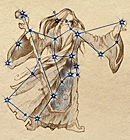
The Mage
- Increase your Intelligence and Willpower by 5.
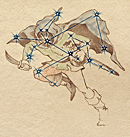
The Thief
- Increase your Agility and Luck by 5.
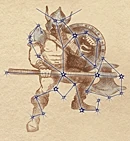
The Warrior
- Increase your Endurance and Strength by 5.
The Charges
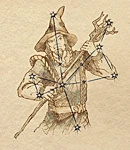
The Apprentice
-
Increase your total magicka by 10 points.
-
You must use one less die when resisting spells, and all spell attacks have advantage against you.
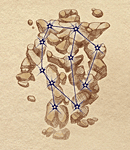
The Atronach
-
Increase your total magicka by 15 points.
-
Whenever you are attacked by a spell, you gain magicka equal to the level of the spell, and the damage taken, if any, is reduced by the same amount.
-
You can no longer regenerate magicka by resting.
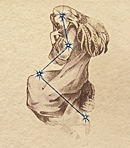
The Lady
- Increase your Endurance and Willpower by 5.
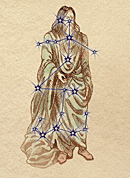
The Lord
- You regain a number of Hit Points every minute by an amount equal to your Endurance die.
- Whenever you take fire damage, increase the damage taken by a amount equal to your Endurance die.
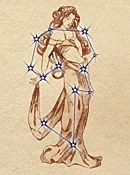
The Lover
-
Increase your Agility by 5.
-
Greater Power: you may spend 10 fatigue to make a melee attack against a target. On a hit, the target is paralyzed until the end of your turn.
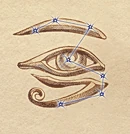
The Ritual
-
Lesser Power: A undead creature of Novice level must make a Willpower roll against you or be Demoralized for 1 minute.
-
Greater Power: you may restore your health by up to 10 points.
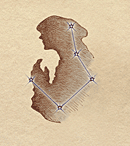
The Shadow
- Greater Power: invisibility on self for 1 minute.
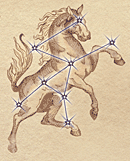
The Steed
- Fortify speed 10 points on self.
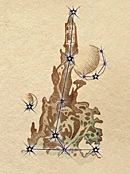
The Tower
-
Greater Power: you may instantly open a lock with a level of Journeyman or lower.
-
Whenever you are hit by a weapon attack, you may choose to only take half damage. If you do, the attacker takes damage equal to the damage you take. You may only do this once per day.
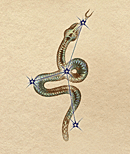
The Serpent
- Greater Power: Spend 5 fatigue to make a Close range attack against a target. On a hit, the target takes 4 points of poison damage, and takes another 1 point at the start of each of its turns for 1 minute.
Example Classes
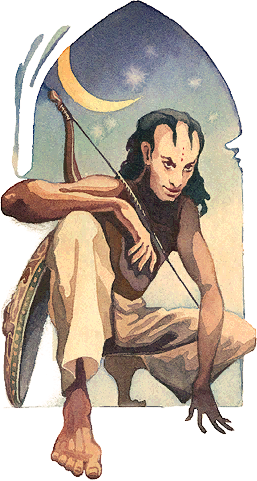
Acrobat
A Stealth focused character
Primary Attributes: Agility, Endurance
Major skill:
Acrobatics
Minor skills:
- Marksman
- Short Blade
- Sneak
- Security
Lesser skills:
- Athletics
- Unarmored
Agent
A Stealth focused character
Primary Attributes: Agility, Personality
Major skill:
Speech
Minor skills:
- Acrobatics
- Sneak
- Security
- Marksman
Lesser skills:
- Short Blade
- Unarmored
Archer
A Combat focused character
Primary Attributes: Agility, Strength
Major skill:
Marksman
Minor skills:
- Athletics
- Shortblade
- Light Armor
- Sneak
Lesser skills:
- Spears
- Medium Armor
Assassin
A Stealth focused character
Primary Attributes: Speed, Intelligence
Major skill:
Sneak
Minor skills:
- Marksman
- Shortblade
- Security
- Alchemy
Lesser skills:
- Acrobatics
- Light Armor
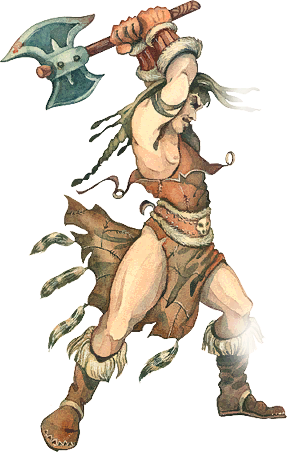
Barbarian
A Combat focused character
Primary Attributes: Speed, Strength
Major skill:
Axe
Minor skills:
- Blunt
- Athletics
- Hand-to-Hand
- Unarmored
Lesser skills:
- Light Armor
- Smithing
Bard
A Stealth focused character
Primary Attributes: Personality, Intelligence
Major skill:
Speech
Minor skills:
- Illusion
- Short Blade
- Alchemy
- Light Armor
Lesser skills:
- Enchanting
- Security
Battlemage
A Magic focused character
Primary Attributes: Strength, Intelligence
Major skill:
Destruction
Minor skills:
- Alteration
- Conjuration
- Enchanting
- Long Blade
Lesser skills:
- Mysticism
- Medium Armor
Crusader
A Combat focused character
Primary Attributes: Strength, Willpower
Major skill:
Blunt
Minor skills:
- Restoration
- Heavy Armor
- Block
- Athletics
Lesser skills:
- Destruction
- Smithing
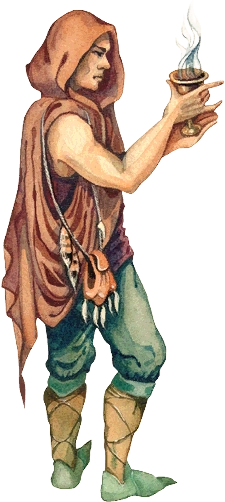
Healer
A Magic focused character
Primary Attributes: Willpower, Personality
Major skill:
Restoration
Minor skills:
- Speech
- Illusion
- Alchemy
- Mysticism
Lesser skills:
- Light Armor
- Alchemy
Knight
A Combat focused character
Primary Attributes: Personality, Strength
Major skill:
Longblade
Minor skills:
- Heavy Armor
- Spear
- Block
- Speech
Lesser skills:
- Blunt
- Smithing
Mage
A Magic focused character
Primary Attributes: Willpower, Intelligence
Major skill:
Alteration
Minor skills:
- Conjuration
- Destruction
- Illusion
- Restoration
Lesser skills:
- Mysticism
- Enchanting
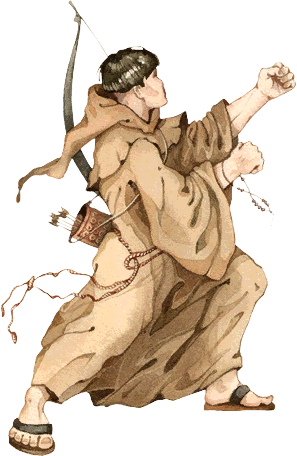
Monk
A Stealth focused character
Primary Attributes: Agility, Willpower
Major skill:
Hand-To-Hand
Minor skills:
- Unarmored
- Acrobatics
- Athletics
- Sneak
Lesser skills:
- Marksman
- Restoration
Nightblade
A Magic focused character
Primary Attributes: Speed, Willpower
Major skill:
Illusion
Minor skills:
- Destruction
- Shortblade
- Sneak
- Alteration
Lesser skills:
- Marksman
- Mysticism
Pilgrim
A Stealth focused character
Primary Attributes: Endurance, Personality
Major skill:
Spears
Minor skills:
- Speech
- Block
- Smithing
- Medium Armor
Lesser skills:
- Alchemy
- Illusion
Rogue
A Combat focused character
Primary Attributes: Speed, Personality
Major skill:
Shortblade
Minor skills:
- Speech
- Block
- Light Armor
- Alchemy
Lesser skills:
- Hand-To-Hand
- Marksman

Scout
A Combat focused character
Primary Attributes: Speed, Endurance
Major skill:
Light Armor
Minor skills:
- Block
- Axe
- Acrobatics
- Alchemy
Lesser skills:
- Spears
- Short Blade
Sorcerer
A Magic focused character
Primary Attributes: Endurance, Intelligence
Major skill:
Heavy Armor
Minor skills:
- Destruction
- Conjuration
- Enchanting
- Alteration
Lesser skills:
- Alchemy
- Spears
Spellsword
A Magic focused character
Primary Attributes: Endurance, Willpower
Major skill:
Long Blade
Minor skills:
- Destruction
- Medium Armor
- Alteration
- Restoration
Lesser skills:
- Block
- Enchanting
Thief
A Stealth focused character
Primary Attributes: Speed, Agility
Major skill:
Security
Minor skills:
- Acrobatics
- Marksman
- Sneak
- Light Armor
Lesser skills:
- Speech
- Short blade
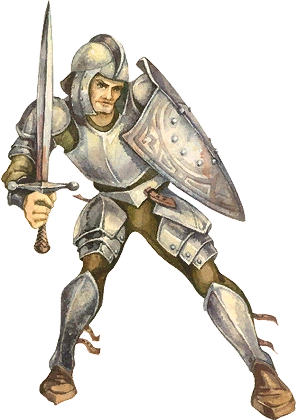
Warrior
A Combat focused character
Primary Attributes: Strength, Endurance
Major skill:
Spears
Minor skills:
- Smithing
- Heavy Armor
- Long Blade
- Block
Lesser skills:
- Axe
- Marksman
Witchhunter
A Magic focused character
Primary Attributes: Agility, Intelligence
Major skill:
Conjuration
Minor skills:
- Alchemy
- Mysticism
- Enchanting
- Marksman
Lesser skills:
- Destruction
- Light Armor
Boons and Curses
Boons and curses add powerful advantages and disadvantages to the game. You may choose up to three of each during character creation. Choosing a boon requires spending some of your Attribute points, while Curses grant you Attribute points. Once you choose a boon or curse, you may not change your decision, so choose wisely...
Boons
Acute Hearing (- 2)
You gain two extra dice on perception checks made using hearing.
Adrenaline Rush (- 5)
When you are at less than a quarter of your maximum health (rounded down), you enter a state of heightened aggression, increasing the damage you deal by an amount equal to a quarter of your level, rounded up (minimum of 1).
Athleticism (- 5)
Your Fatigue cost to gain primary actions is reduced by 2.
Skilled (-5)
One lesser skill of your choice becomes novice.
Weapon Expertise (- 5)
Choose a weapon type: Marksman, Spears, Ax, Blunt, Long Blades, or Short Blades. Attacks made with weapons of the chosen type are made with one extra dice.
Magic Novice (- 2)
You learn one Novice spell of your choice.
Hatred (- 5)
Choose one of the following creatures: Animals, Daedra, 1 Humanoid family of your choice (Goblin kin, Elves, Men, Beastfolk, e.t.c), or Undead. You gain an extra die on attack rolls made against your chosen type. You can choose this boon multiple times, each time choosing a new creature.
Increased Magery (- 10)
The calculation to determine your maximum magicka is now your Intelligence + a quarter of your Willpower, rounded down (minimum of 0).
Resistance (- 5)
Choose one of the following effects: Disease, Fire, Frost, Paralysis, Poison or Shock.
If the chosen effect damages you, you take half damage from it. If it is Disease or Paralysis, you gain 1 extra die on rolls made to resist its effects. You can choose this boon multiple times, each time choosing a new effect.
Blessed Light (- 10)
You heal 1 hitpoint at the start of each of your turns when you are in a holy place (I.E any temple, shrine, or altar of the Divines).
Blessed Shadows (- 5)
You gain one extra hitpoint from resting in darkness.
Lucky (- 10)
Whenever you roll a die and roll a failure (but not a critical failure) you may reroll the die. You must take the new result, even if it is another 1. You may only do this once per check.
Indefatigable (- 10)
The calculation to determine Your total amount of Fatigue is now your Strength + a quarter of your Agility, rounded down (minimum of 0).
Healthy (- 10)
The calculation to determine Your total amount of Health is now your Endurance + quarter of your Willpower, rounded down (minimum of 0).
Still Mind (- 10)
You have advantage on dice rolls against being Frightened or Frenzied.
Savant (- 10)
Choose an attribute. Any time you roll a 1 while rolling with that attribute, may treat that as a normal failure instead of a critical.
Strong Magicka (- 10)
You total magicka regeneration is doubled.
Relentless (- 10)
You total fatigue regeneration is doubled.
Favored Environment (- 5)
Choose one of the following environments: Tundra, Woodland, Desert, Ruins, Grasslands, or Mountains. Your health regeneration amount is increased by 2 when resting in the chosen environment.
Learned (- 10)
You gain an extra lesser skill of your choice.
Faction Member (- 5)
Chose one of the factions found in the Factions section of this book. You may start the game as a member of that faction.
Famous (- 5)
You start the game with 1 Fame Point.
Curses
Deaf (+ 2)
You use two less dice on perception checks made using hearing.
Daunted (+ 5)
When you are at less than a quarter of your maximum health (rounded down), you enter a state of great fear, reducing the damage you deal by an amount equal to a quarter of your level, rounded down (minimum of 1).
Winded (+ 5)
Your Fatigue cost to gain primary actions is increased by 2.
Unskilled (+ 5)
You lose 1 minor skill and gain 1 lesser skill.
Phobia (+ 5)
Choose one of the following creatures: Animals, Daedra, 1 Humanoid of your choice (Goblins, Dunmer, Nords, Argonians, e.t.c), or Undead. The chosen creature type gains an extra die on attack rolls made against you. You can choose this curse multiple times, each time choosing a new creature.
Stunted Magery (+ 5)
The calculation to determine your maximum magicka is now Your total half of your Intelligence, rounded down.
Weakness (+ 5)
Choose one of the following effects: Disease, Fire, Frost, Paralysis, Poison or Shock. If that effect damages you, you take extra damage equal to half the base damage from it. If it is Disease or Paralysis, you lose a die on rolls made to resist its effects. You can choose this curse multiple times, each time choosing a different effect.
Cursed Light (+ 10)
You take 1 damage at the start of each of your turns when you are in a holy place (I.E any temple, shrine, or altar of the Divines).
Debilitating Shadows (+ 10)
You do not regain health from resting while in darkness.
Forbidden Material (+ 5)
Choose a one of the following: Iron, Steel, Silver, Dwemer, Ebony, Glass, Mithral, Daedric, Adamantium, Elven, or Orcish. You cannot use any suit of armor or weapon of that type.
Unlucky (+ 10)
Whenever you roll a die and roll a 6 you must treat it as a normal success as opposesed to a critical success. This takes effect for only the first 6 rolled on a check.
Fainting (+ 10)
The calculation to determine your maximum fatigue is now half your Strength, rounded down.
Unhealthy (+ 10)
The calculation to determine your maximum health is now half your Endurance, rounded down.
Disturbed Mind (+ 10)
You must use 1 less dice on rolls made against being Frightened or Frenzied.
Clumsy (+ 10)
Choose an attribute. Any time you roll a 2 while rolling with that attribute, you must treat that as a critical failure
Weak Magicka (+ 10)
You total magicka regeneration is half your normal regeneration (minimum of 0).
Slow Recovery (+ 10)
You total fatigue regeneration is half your normal regeneration (minimum of 0).
Feared Environment (+ 5)
Choose one of the following environments: Tundra, Woodland, Desert, Ruins, Grasslands, or Mountains. Your health regeneration amount is reduced by 2 when resting in the chosen environment.
Infamous (+ 5)
You start the game with 1 Infamy Point.
Light powered Magery (+ 5)
You cannot regenerate magicka while in darkness. Choosing this curse prevents you from choosing the Darkness Powered Magery curse.
Darkness Powered Magery (+ 5)
You cannot regenerate magicka while in bright light. Choosing this curse prevents you from choosing the Light Powered Magery curse.
Backgrounds
No adventurer comes out of the womb as a grizzled warrior ready to take on a troll. They all began somewhere, whether it was in the streets of the Imperial City or the frozen tundra of Skyrim. Whether you are a Wizard or Thief, it is important to understand where your character came from, in order to understand where they will go. Each of the following question will change the style of your Character and help set their background, allowing you to play as a rich noble or a poor urchin, as well as helping you determine their Personality, morality, and other details vital to Roleplaying. You may only choose one answer per question.
Where did you spend your childhood (Choose one)?
- I lived in the streets of a great city, picking pockets and snatching loaves of bread to survive. (+ 5 Agility)
- I lived in a small village, helping my parents with hard farm work and labor (+ 5 Strength)
- I lived far from civilization, and I had to face the elements and nature in all their fury. (+ 5 Endurance)
- I lived as the child of a local noble, where I learned the ways and intrigues of court. (+ 5 Personality)
- I lived in a cloistered community of scholars, where I received better than average schooling. (+ 5 Intelligence)
- I lived in a military outpost, where I learned discipline and fortitude. (+ 5 Willpower)
- I lived as a nomad, never staying in place for too long. (+ 5 Speed)
- I lived life a simple traveler, trusting in fate or the Divines too see me through. (+ 5 Luck)
Who taught you about your main skill (Choose one)?
- My mentor was a retired Imperial soldier, and when I finally left his teaching, he gave me his sword as a momento. (+ 1 Imperial Sword)
- I was taught in a university by a learned professor, and as a parting gift he gave me a rare tome. (+ 1 rare book)
- My teacher was a great bard who taught me many things about the world. When I finally left his tutelage, he gave me my own lute. (+1 worn lute)
- My mentor was a old Hermit, resigned from the world and living a independent life. He taught me begrudgingly, but by the time I was done he was so impressed he gave me his gold ring, the last piece of his former life. (+1 plain gold ring)
- I served in one of the Temples of the Divines, where the high priest took a interest in me and taught me about my current craft. When I finally decided to leave the temple life, he gave me a holy amulet devoted to the Temples patron. (1 Amulet, modeled after one of the Nine Divines)
- My 'mentor' was a scoundrel, who almost killed me numerous times. When I finally had enough and ran away, I took with me a his lucky stone, a sapphire engraved with strange writing. (+1 strange Gem)
- My parents hired me a tutor in my craft. When my training was completed, he gave me a book detailing the specifics of my new trade. (1 book about your major skill)
- I taught myself, and managed to hire out my services once or twice (+ 20 Gold).
Why did you choose to become a adventurer (Choose One)?
- To make the world a better place.
- It's all for the money.
- I want to see the world and learn about other races and cultures.
- My entire family was wiped out in a Bandit Raid. I will not allow anyone else to suffer that fate
- The Divines tell us to go and help the less fortunate.
- I come from a long line of Adventurers, and I am merely keeping the tradition alive.
- I was cast out from my home for a crime I committed. This is the only way I know to lie low until I can return.
- When I left the Imperial legion, I thought I left this life behind. I was wrong.
- Someone stole something of great value to me, and I must take it back.
Starting Out
When you begin the game, you start off with gear and spells based off your major and minor skills. All characters start with a pair of Commoners clothes and 50 Septims.
Acrobatics: A 50 foot coil of rope.
Athletics: A set of sturdy boots.
Security: A set of lockpicks.
Sneaking: A pair of dark clothes.
Marksman: A Iron shortbow and 20 Iron arrows.
Hand-To-Hand: A pair of sturdy leather gloves.
Unarmored: A white tunic and leggings.
Alchemy: A Mortar and Pestle.
Alteration: Two novice Alteration spells of your choice.
Conjuration: Two novice Conjuration spells of your choice.
Destruction: Two novice Destruction spells of your choice.
Illusion: Two novice Illusion spells of your choice.
Mysticism: Two novice Mysticism spells of your choice.
Restoration: Two novice Restoration spells of your choice.
Enchanting: A unfilled Common soul gem.
Blunt Weapon: either a Iron Mace or a Iron Warhammer.
Axe: either a Iron Battle Axe or a Iron Great Axe.
Long Blade: either a Iron Longsword or a Iron Greatsword.
Short Blade: either a Iron Dagger or a Iron Shortsword.
Smithing: A hammer, prongs, and a tinder box.
Block: either a Iron or Hide shield.
Light Armor: a set of Leather Armor.
Medium Armor: a set of Hide Armor.
Heavy Armor: a set of Iron Armor.
Spears: a Iron Spear.
Mercantile: 50 gold pieces.
Speechcraft: Either a lute, a flute, or drums.
Factions
Their are many factions in Tamriel, all with their own goals, aims, and means. Some are honest guilds that obey the laws of the Empire, while some are nefarious, and to join one or even appear involved in one is a dangerous affair. Below are some of the more popular factions in the Empire, and all can be joined by individuals who follow the factions tenets. Joining a faction can grant a player many things, including free housing, cheao training, exclusive shops for faction members. However, joining a faction can make you a target for that faction's enemies, and joining a faction involved in illegal activity could invite repercussions from the law.
Arena
The Best Techniques are passed on by the survivors.
~ Gaidon Shinji, First Arena Blademaster.
The Arena in the Imperial City is a place where gladiatorial combat is displayed, and bitter fights to the death are ensued at the cheering of the betting crowds. Their are two teams in the Cyrodiilic Arena: The Yellow Team and the Blue Team. Each team is pitting against each other and other teams from the Imperial Provinces. A member of the Arena can join a fight to the death against another member. The winner of the fight will then collect a portion of the money of the losing betters. A successful member of the Arena will be quite famous in the place of their brawls, and, while some people will consider them as vulgar practitioners of a bloodthirsty sport, most folk will look upon them with awe and perhaps a little adoration. With each successful match, the GM may reward 1 fame point on the winner.
Locations: Imperial City, Vivec City, Windhelm, Other Locations across Tamriel.
Ranks: Pit Dog, Brawler, Bloodletter, Myrmidon, Warrior, Gladiator, Hero, Champion, Grand Champion.
Blades
The Blades are sworn to the service of the Emperor, as the mortal representative of the Dragon Blood of the divine Talos.
~ Jauffre, Grandmaster of the Blades
Descended from the Akaviri Dragonguard, the Blades Original and Primary goal is the protection of the Emperor of the Cyrodiilic Empire. Their other functions include espionage, military action, and diplomacy. While a few of the Blades are in public service to the emperor, most serve as Covert operatives, and serve as the Empires eyes and ears. A member of the Blades can expect to preform such duties as intel gathering, courier duty, and the protection of important members of the Empire.
Members of the Blades have access to confidential information, safe houses and trainers, and may also employ the support of local Imperial agents.
Locations: Numerous safe houses throughout the Empire.
Ranks: Novice, Apprentice, Journeyman, Finder, Traveler, Operative, Agent, Spy, Spymaster, Grand Spymaster (or Grandmaster).
Dark Brotherhood
Sweet Mother, sweet Mother, send your child unto me, for the sins of the unworthy must be baptized in blood and fear.
~ The Black Sacrament.
A dark guild of Assassins, the Dark Brotherhood follows the ways of the Night Mother, a mysterious figure who is said to be the wife of Sithis, the dread father and the hungry void. The Dark Brotherhood will kill for anyone for the right price, and their quarries can range from the lowliest beggar to the Emperor himself.
A member of the Dark Brotherhood can gain access to the many hidden sanctuaries of the Brotherhood, and can gain access to rare spells, poisons, and weapons. When a Member completes a assassination, the GM may give 1 Infamy point to the member.
Locations: Sanctuaries throughout Tamriel. Known sanctuaries include Old Mournhold, Falkreath, Dawnstar, Wayrest, and Cheydinhal.
Ranks: Murderer, Slayer, Eliminator, Assassin, Executioner, Silencer, Speaker, Listener.
East Empire Company
Raven Rock was founded in 3E 427 by the East Empire Company in response to the discovery of a rich ebony mine on the southern edge of the island of Solstheim. The construction of the town took several months, and the mine immediately started yielding ebony ore that the miner's shipped to Windhelm in Skyrim..
~ History of Raven Rock, Vol. 1.
A trading company given monopolistic rights by the Empire, the East Empire company works along the Eastern Coast and controls the trade from Morrowind, Skyrim, the Black Marsh, and other areas of interest. The East Empire Company has exclusive rights to the trade of Ebony, Dwemer Artifacts, and numerous other goods. Quick to recruit enterprising individuals, the East Empire Company is often used as a way for individuals to rise in station and get rich. Members of the East Empire Company may expect to preform such duties as guarding trading vessels and caravans from bandits, track down smugglers or thieves, and otherwise deal with issues that may hamper the Company's progress.
A member in good standing with the company gain a powerful friend to help them in a tight spot, for few people wish to make enemies with it. A member can be provided with lucrative information on trades and stocks, and may also, for higher ranking members, be able to acquire a estate for little to no cost to themselves. A GM may award up to 3 Fame Points every time a member advances in rank with this faction.
Locations: The Imperial City, Solitude, Windhelm, Ebonheart, Raven Rock, and various other port cities throughout the Empire.
Ranks: Underling, Clerk, Steward, Fixer, Agent, Negotiator, Officer, Deputy, Factor.
Fighters Guild
Dinieras-Ves "the Iron", presented himself with a host of companions before the Potentate. It was he who suggested an order of mercantile warriors-for-hire, who could be hired by nobility in lieu of a standing army. The employment would be temporary, and a percentage of the fee would go to the Potentate's government, thus putting salve on two of Versidae-Shaie's greatest pains.
Though it was then called The Syffim, after the Tsaesci word for 'soldiers,' the organization that was to be known as the Fighters Guild had been born.
~ History of the Fighters Guild.
The Fighters Guild, along with its sibling guild the Mages Guild, were both created by the Guilds act of 2E 320. The purpose of the Fighters Guild is to supply cheap and legal mercenaries for a variety of uses, including protection, extermination of dangerous beasts, and the killing of criminals such as bandits.
A Member of the fighters guild can receive a number of benefits from membership, including free room and board at most major towns and cities throughout the Empire, and can enlist the help of Guild Trainers and Armorers to cheaply train martial skills and repair armor. Whenever a member completes a contract, the GM may choose to reward the member with 1 Fame Point.
Locations: A Fighters Guild hall can be found in most of the major towns throughout the provinces. Its main headquarters is the Chorrol Guild Hall in Cyrodiil.
Ranks: Associate, Apprentice, Journeyman, Swordsman, Protector, Defender, Warder, Guardian, Champion, Master.
Imperial Legion
Upon my honor I do swear undying loyalty to the Emperor, and unwavering obedience to the officers of his great Empire. May those above judge me, and those below take me, if I fail in my duty. Long live the Emperor! Long live the Empire!.
~ The Imperial Oath.
The sword and shield of the Empire, the Imperial Legion serves as the Empire's army and policing force. A member of the Legion will have to adhere to a strict code of discipline if they wish to advance in rank, but a simple auxiliary is often given a great deal of freedom.
A member of the Legion may be required to raid a camp of bandits or rebels, serve as a guard in a fortress or town, or aid their commanding officer's in any way. Benefits to joining the Legion include free training in arms and armor, access to a wide array of supplies, free travel when done on imperial business, and free access to imperial barracks and forts.
Every time a member advances in rank, the GM may reward up to 3 Fame Points.
Locations: In various barracks and forts throughout the Empire. The Imperial City Legion Office is located in the Prison District of the Imperial City.
Ranks: Auxiliary, Private, Quaestor, Praefect, Tribune, Commander, Legate, Captain, General.
Due to the restrictive nature of the Imperial Legion, it is recommended that the GM should only allow a player to join as a Auxiliary, unless the Legion itself is a crucial part of the Campaign.
Mages Guild
When Vanus Galerion, a Psijic of Artaeum and student of the famed Iachesis, began collecting magic-users from around Summerset Isle, he attracted the animosity of all. He was operating out of the urban center of Firsthold, and there was a common (and not entirely unfounded) attitude that magical experiments should be conducted only in unpopulated areas. Even more shocking, Galerion proposed to make magical items, potions, and even spells available to any member of the general public who could afford to pay. No longer was magic to be limited either to the aristocracy or intelligentsia.
~ Origin of the Mages Guild.
Originally a offshoot of the Psijic Monks, the Mages guild formed in the beginning years of the Second Era alongside its sibling guild, the Fighters Guild. The aims of the Mages Guild is to provide magic for all the citizens of the Empire, and offers its services by selling Potions and Enchantments to all comers. A member of the Mages Guild should expect to preform such tasks as gathering Alchemy Ingredients, dealing with evil mages, root out Necromancers, enchant items for clients, and uncover and retrieve magical artifacts.
A Knightly order, known as the Order of the Lamp, is tasked as the guardians of the Mages Guild and serve as their internal police source. A knight can only join if they demonstrate their fighting abilities and are in good standing with the Mages Guild.
A member of the Mages Guild has access to free board in any Guild hall, as well as access to magic trainers and spell merchants. They may also use the services of the local Guild Guide to teleport to any other Guild Guide in the Province.
Locations: A guild hall may be found in most major towns in Tamriel. Its headquarters is the Arcane University in the Imperial City.
Ranks: Associate, Apprentice, Journeyman, Evoker, Conjurer, Magician, Warlock, Wizard, Master Wizard, Arch Mage.
Knightly Orders
After these knights drove the Direnni back to Balfiera Island, they founded the knightly orders to carry on the tradition of nobles-in-arms, and to ensure that High Rock would have able and ready defenders in times of trouble.
~ The Knightly Orders of High Rock.
A knightly order is a brotherhood of warriors sworn to some higher power or cause. They only take on members with strong martial skills and that uphold that orders Tenets. Knightly Orders include, but are not limited to:
-
The Knights of the Dragon Protect the ruling family of Daggerfall. A aspirant must prove his combative skills and have a reputation of honor and loyalty to Daggerfall.
-
The Knights of the Nine were founded in the search for the legendary Crusader's Relics of Pelinal Whitestrake, and serve none but the Nine Divines. They make their abode in the Priory of the Nine in Cyrodiil.
-
The Order of the Virtuous Blood, in Cyrodiil, was founded more as a club then a knightly order, and its primary purpose is to hunt Vampires.
-
The Dawnguard of Skyrim, however, are serious vampire hunters who use a number of unique weapons and armor to hunt down the Vampire menace.
-
The Order of The Lamps serve the Mages Guild as their personal protectors as well as hunters of Necromancers.
A member of a knightly order can expect to be well received by both commoners and nobles, and a GM may give a member up to 3 Fame Points each time they advance in rank with a knightly order. Only one order may be joined at a time.
Example Ranks: Aspirant, Squire, Gallant, Chevalier, Keeper, Knight Brother, Commander, Marshall, Seneschal, Paladin.
Thieves Guild
Rulers like us. Crime in moderation is good for the economy. The trick is to keep it at a good even pace, with a well timed lull and a minor wave to keep the fat bottoms from becoming complacent. Of course, stupid, but talented thieves will keep stealing, empty their pockets, and steal some more. This ain't good for no one. That's where the guilds come in.
~ Confessions Of A Thief.
Less of a single entity and more of a loose confederation of provincial guilds, a thieves guild is, of course, a group of theives bound by the code of a single entity. While they are criminals, and thieves guilds are Illegal throughout Tamriel, most rulers tolerate their local guild, whether because of hefty bribes or the fact that the Thieves Guild does not tolerate "freelance" thieves working in their areas, reducing the total amount of crime in the area.
A member of the Thieves guild can expect such jobs as burglary, pickpocketing, the forging of papers, and other nonviolent crimes. A member can benefit from Trainers in the skills of a thief, fences to sell illegal goods, and can even expect the Guild to help keep them out of prison through the use of well-placed bribes. When a member completes a job for the Thieves guild, the GM may reward 1 Infamy Point to them.
Locations: The Thieves guild has little in the way of permament guild halls, but many inns or clubs throughout the Empire serve as fronts for the Thieves guild. There are also rumors of a large Theives Guild hideout in the Ratway of Riften.
Ranks: Pickpocket, Footpad, Bandit, Prowler, Cat Burglar, Shadowfoot, Master Thief, The Grey Fox (Or Guildmaster).
Temples of the Divines (Imperial Cult)
Yet the wicked and foolish are not doomed, for in their infinite mercies, the Nine have said, "Repent, and do Good Works, and the Fountains of Grace shall once more spill forth upon you.
~ The Ten Commands of the Nine Divines.
The Empire supports the worship of the Nine Divines: Akatosh, the dragon god of Time and chief diety of the Imperial Cult, Arkay, the god of the cycle of life and death, Dibella, the goddess of beauty, Julianos, the god of wisdom, Kynareth, the goddess of nature, Mara, the goddess of love, Stendarr, the god of mercy, Talos (or Tiber Septim), the hero-god of mankind, and Zenithar, the god of commerce. Most members of the Imperial cult actively worship a select number of the Divines, but all members encourage the worship of all nine to flourish.
A member can either work as a Almoner, asking and collecting donations from various individuals and organizations, a Lay Healer, who mostly gathers healing herbs and provides healing for others, whether magically or through nonmagical means, or as a Shrine Sergeant, who works either to protect Almoners and Lay Healers as the preform their tasks, or to defeat enemies of the faith, such as necromancers, Daedra worshipers, the Undead or Daedric Beings.
Whenever a member completes a assignment, the GM can reward up to 1 Fame Point to them, depending on the nature of the mission.
Locations: Most large Imperial towns have a temple, and the Temple often launch missions to cultures that do not have a large Imperial influence, such as Morrowind, Hammerfell or Elswyr. Large temples include the Temple of the One in the Imperial City, the Temple of the Divines in Solitude, or the Imperial Chapels in Ebonheart.
Ranks: Layman, Novice, Initiate, Acolyte, Adept, Disciple, Oracle, Invoker, Theurgist, Primate.
Vampire Clans
There are over one hundred distinct kinds of vampire in Tamriel. The Iliac Bay region alone has nine variations with unique powers and abilities.
~ Vampires of the Iliac Bay.
The children of Malog Bal, the Undead of the Night, vampires are a curse upon Tamriel, and have been since the beginning of recorded history. Vampires are Dead who Rise again, and their are numerious families, or clans, of Vampires, each with their own special abilities. Below is a list of some of the more common Vampire clans, organized by the province in which they live.
High Rock and Hammerfell
-
The Anthosis are a clan of extremely intelligent vampires that live in the Alik'r desert.
-
The Garlythi clan is found in the lands of Northmoor and Phrygias. They can use their magics to shield themselves from harm.
-
The Haarvenu clan is found in the lands of the Ilessian hills, and can cast powerful spells of Frost and Flame.
-
The Khulari live in the Dragontail mountains, and can paralyze their victims with but a word.
-
The Lyrezi live in Orsinium and the Wrothgarian Mountains, and can turn invisible and silence their prey.
-
The Montalion live in the area of Wayrest, and can strike with startling swiftness.
-
The Selenu live in the area of Sentinel, and have resistance to all elemental effects.
-
The Thrafey live around Urvaius, and can rapidly heal any wounds they recieve.
-
The Vraseth live in the Area of Daggerfall and are supernaturally nimble.
Black Marsh
- The Whet Fang are a secretive group found in the Black Marsh, and force their victims into a catatonic state to drain their blood.
Cyrodiil and Skyrim
-
The Volikar live in the frozen lakes of Skyrim, and are said to freeze their victims with their breath.
-
The clan in Cyrodiil is known only as the Cyrodiil Vampyrum Order, and can blend in with mortals easily.
Morrowind
-
The Aundae clan are powerful magic users, and more gifted than most in the dark powers inherant to vampirism
-
The Berne clan favor hiding in the shadows, and using deception rather then might to accomplish their goals
-
The Quarra clan are bold warriors, fearing nothing and often times go into a frenzied rage which few can stand against.
Valenwood
-
The Bonsuma clan is indistinguishable from a average Bosmer, except when seen be candlelight.
-
The Keerilth clan hunt in the woods of the Shadowmist Moors, and can transform into mist to elude capture.
-
The Telboth clan are vile even among other vampires, for they prey on children and replace them in the family, before consuming them all years later.
-
The Yekef clan are mysterious, and are only known for their rumored ability to swallow men whole.
Other
The rarest clan of them all, the Lamae Beolfag bloodline is said to be direct descendants to the first vampire, known as the Blood Matron. These vampires are not harmed by sunlight, but instead grow more powerful as night falls on Tamriel, until they are nearly invincible.
Locations: Various
Example Ranks: Cattle, Neonate, Minion, Servant, Stalker, Bloodkin, Reaver, Lord, Elder, Ancient
The base game has no rules on players being vampires, and the above list is intended for GMs to make unique NPC Vampires. If a Player wishes to become a Vampire, and the GM allows it, they should consult the companion guide Foul Blood.
Reputation: Fame and Infamy
Reputation is the mark of how well known a character is in the world of Tamriel, and equal a characters combined Fame / Infamy score. Fame is a mark on how well well known your heroics are known, while your Infamy is a mark on how well known your crimes and vile deeds are known. A character with high Fame and low Infamy might be regarded as a paragon of perfection and greatest, while a character with high Infamy and low Fame might be regarded as a bogeyman, a legendary villain capable of monstrous acts. Both the Fame and Infamy scores range from 0, the starting value, up to 100, which is the level of the Eternal Champion or the demon-god Dagoth Ur.
While Fame and Infamy do not have much importance in combat or exploration, it is of vast importance for social interaction. Characters with high Fame are able to do things and talk to people characters with low fame can't. For example, if the player party wishes to speak to the Jarl of Whiterun, and have a Fame of only 5, the Jarl will most likely be unwilling to speak with them unless they can convince him of the urgency of their mission. The same is true on the opposite side with Infamy. If the party wishes to speak to the Grey Fox and only have a Infamy of 2, the Grey Fox will most likely avoid them, thinking that they may be Imperial Agents luring him to a trap. In the NPC section of the creature list, it shows the NPC's Responsibility and Fame. The NPC will not converse with players if their Infamy is more than the Maximum Infamy for that Characters Responsibility, shown on the table below, or if their Fame is less then half the Fame of the NPC, rounded down. If multiple players wishes to perform a task using high Fame or Infamy, their Fame / Infamy points equals the average Fame / Infamy points of the group.
.
Responsibility
| Responsibility | Tolerable Infamy | Favored Infamy |
|---|---|---|
| 1-10 | + 100 | > 40 |
| 11-20 | < 90 | > 30 |
| 21-30 | < 80 | > 20 |
| 31-40 | < 70 | > 10 |
| 41-50 | < 60 | > 0 |
| 51-60 | < 50 | < 40 |
| 61-70 | < 40 | < 30 |
| 71-80 | < 30 | < 20 |
| 81-90 | < 20 | < 10 |
| 91-100 | < 10 | 0 |
.
.
Example
Lucy and Peter are playing as a Khajiit Assassin with a Fame of 26 and a Infamy of 40, and a Nord Barbarian with a Fame of 40 and a Infamy of 2, respectively. Lucy's Character, the Khajiit, wishes to speak to the Count of Skingrad and ask for a favor. Since the Count NPC stat block has the Count at a Responsibility of 70 and a Fame of 60, the Count refuses to speak with her, fearing that associating himself with her would prove disastrous to his station. However, Peter offers to come with her, raising the Group Reputation 49. since the Groups total Fame now equals 33 and their total Infamy equals 21, the count is now willing to speak with them, albeit secretly.
Disposition
Disposition affects how a NPC will treat a certain player. Each NPC is Given a base Disposition, which is their Disposition towards strangers. This Disposition can be affected by a Players Fame / Infamy, Depending on the NPCs Responsibility, and, if the NPC and Player are both part of the same Faction, twice the total rank number the Player has in that faction.
Disposition can change throughout the game based off interactions between the Players and the NPC. Generally, favors increase Disposition, while any crimes or wrongs committed against the NPc can result in a decrease. The GM is recommended to award / remove anywhere from 1 to 10 points, depending on the scale of the deed. The GM is also recommended to keep track of NPCs Disposition towards each party member, though that should only be reserved for major NPCs.
Disposition
| Disposition | Familiarity |
|---|---|
| 1-20 | Foe |
| 21-40 | Rival |
| 41-50 | Acquaintance |
| 51-70 | Friend |
| 71-90 | Ally |
| 91-100 | Devotee |
A Foe of the players is actively determined to have the characters fail. This may or may not involve physical violence. A powerful Noble enraged at the parties ruining of his countryside estate might do his best to humiliate the party and do his upmost to make them appear as a danger to society or a band of fools, but will not resort to killing them.
A NPC that is a Rival to the players is, while not actively attempting to ruin the players, will dislike the characters and will most likely have no qualms with performing a action that may hurt the players. A band of rival adventurers will most likely not attack the party, but they'll have no problems with attempting to attract customers at the expense of the party.
An Acquaintance of the players knows them in passing, if at all. They will not usually perform any favors for the characters, but they will also not unduly harm them. Most NPC's do not stay in this stage for long, either going up or down depending on how the Characters treat them in the future. The local Innkeeper at the town the party arrived in will not care about the deeds of the party, as long as they buy plenty of drink.
A Friend of the players likes the players, and will be willing to perform small favors for them, though not at the risk of bodily harm to themselves. A merchant who the party did a few jobs for won't go with them into battle, but he may give them a slight discount at his shop.
An Ally of the players know them well, and may go out of their way to help you. Depending on the NPC, they may even be willing to fight for the party. A Warder of the Fighters guild who has helped and been helped by the party on numerous occasions will most likely be willing to join the party on their adventures, unless it means leaving the guild.
A Devotee of the players adores and may nigh-worship them, and will do everything in their power in order to help the party succeed in their goals. A fan of a characters Arena endeavors may follow them and watch them and worship the ground they walk on, and may even take a arrow in the knee for them.
Abilities
Personality
-
Etiquette Etiquette is a skill checked whenever one attempts to be polite, deferential, and charming in conversation.
-
Streetwise Streetwise is a skill checked whenever one attempts to be blunt, colloquial, or otherwise informal in conversation.
Intelligence
-
Medical Medical skill is automatically checked whenever one rests, allowing one to diagnose minor injuries and illnesses.
-
Lore Lore is a skill checked whenever one wishes to recall information.
Agility
-
Pickpocket Pickpocketing is a skill automatically checked whenever one attempts to steal an item off a person or shelf without being detected.
-
Stealth The skill is checked whenever one wishes to conceal themselves or their actions from others. Is used with the Sneak skill.
Speed
- Acrobatics This ability is checked whenever one wishes to perform a serious gymnastic endeavour, such as attempting to leap out of the way of something. Is used with the acrobatics skill.
Luck
- Gambling Is used both in gambling games as well as when attempting something that the outcome is onkown and other attributes do not cover it.
Willpower
- P